Table of contents
Why Your AC's Drain Line Matters More Than You Think
An AC drain line clogged with debris can lead to water damage and muggy air. If you see puddles around your unit or notice a musty smell, here's what you need to know:
Quick Fix for Minor Clogs:
- Turn off your AC at the thermostat and breaker
- Locate the PVC drain pipe outside your home
- Use a wet/dry vacuum to suction out the blockage
- Pour a 1:1 vinegar-water solution down the line
- Let sit 30 minutes, then flush with clean water
Call a Professional If You See:
- Water damage on ceilings or walls
- AC system won't turn on
- Repeated clogs after DIY attempts
- Electrical issues near the unit
Your AC's drain line removes gallons of moisture from your home daily. When it gets clogged with algae, mold, or debris, that water has nowhere to go but back into your house.
The good news? Most minor clogs are easy to fix yourself. The bad news? Ignoring the problem can lead to expensive water damage and a failed AC system.
This guide walks you through simple DIY fixes and the warning signs that mean it's time to call in the pros.
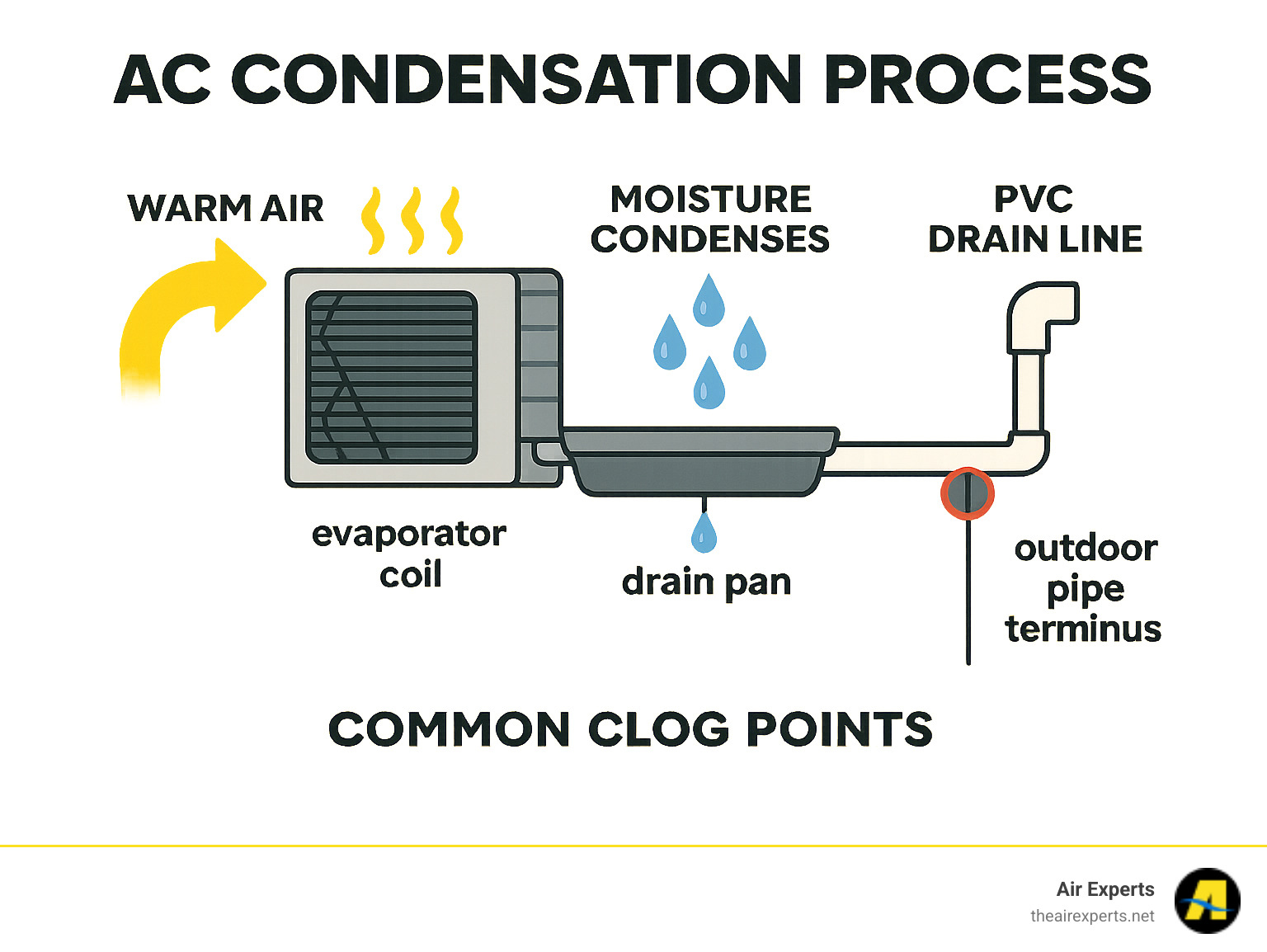
Understanding Your AC's Condensate Drain Line
Your AC's condensate drain line is a crucial component that works to keep your home dry and your system running smoothly, especially on a sweltering Birmingham summer day.
Here's how it works: When your AC pulls warm, humid air over its cold evaporator coils, condensation occurs. Moisture from the air turns into water droplets, which collect in a drain pan beneath the coils.
From there, gravity pulls the water through a PVC pipe—the condensate drain line—which carries the moisture safely outside your home, usually near the foundation or into your plumbing system.
This process is vital for both your home's comfort and your system's health. A clear drain line prevents water from backing up into your floors, walls, or ceiling.
Telltale Signs of a Blockage
Your AC will give you clear signals when the drain line is blocked. Knowing what to look for helps you catch problems early.
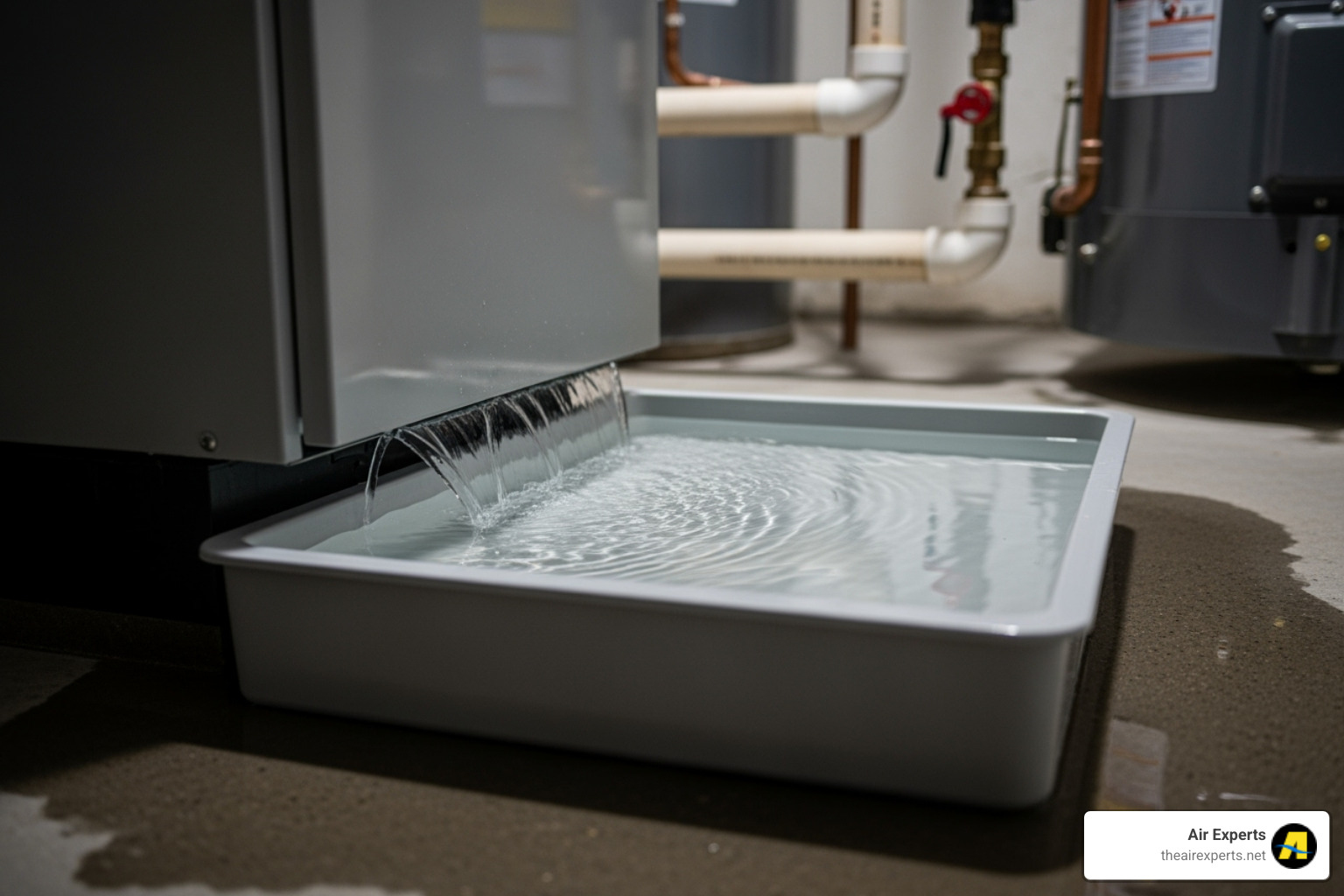
The most obvious sign is standing water. Puddles around your indoor unit or water in the drain pan mean the AC drain line clogged somewhere.
Evidence can also appear as water stains on your ceiling or walls. These yellowish or brown marks often indicate an overflowing drain pan from a unit in the attic.
A musty, moldy smell from your vents is another red flag. This indicates stagnant water is breeding contaminants inside your system.
Perhaps the most dramatic sign is when your AC system shuts down unexpectedly. Many units have a float switch in the drain pan that cuts power when water levels get too high. This safety feature prevents major water damage but means no cooling until the clog is fixed.
Why is my AC drain line clogged?
So, what causes this simple pipe to get blocked? The dark, damp conditions inside the line create a perfect environment for several problems.
The biggest troublemaker is algae and mold growth. As your AC pulls in moisture and airborne spores, they can form slimy buildups that block the pipe.
Dust, dirt, and other debris can also mix with condensation to form a thick sludge that settles in the drain pan and hardens over time.
Improper installation can also be a factor. If the drain line lacks a sufficient downward slope, water will sit instead of flowing, encouraging blockages.
A clogged air filter restricts airflow, which can cause the evaporator coil to freeze. When the ice melts, the sudden rush of water can overwhelm the drain and push debris further into the line.
High humidity climates, like ours in Alabama, create more condensation, increasing the risk of clogs and biological growth.
Your Step-by-Step Guide to Unclogging an AC Drain Line
If you find your AC drain line clogged, don't panic. Most minor blockages are straightforward to fix yourself with a few safety precautions. Follow these steps carefully, and you can have your AC draining properly in under an hour.
Safety First: Prepping for the Job
Before starting, turning off the power is non-negotiable. First, switch your thermostat to the "Off" position. Then, go to your electrical panel and flip the breaker for your AC unit (often labeled "Air Handler," "Furnace," or "AC") to the off position. This double-shutdown ensures your safety.
Gather your tools: a wet/dry vacuum, duct tape, white distilled vinegar, clean water, and protective gloves. A stiff brush can also be helpful.
DIY Fixes for a Minor Clog
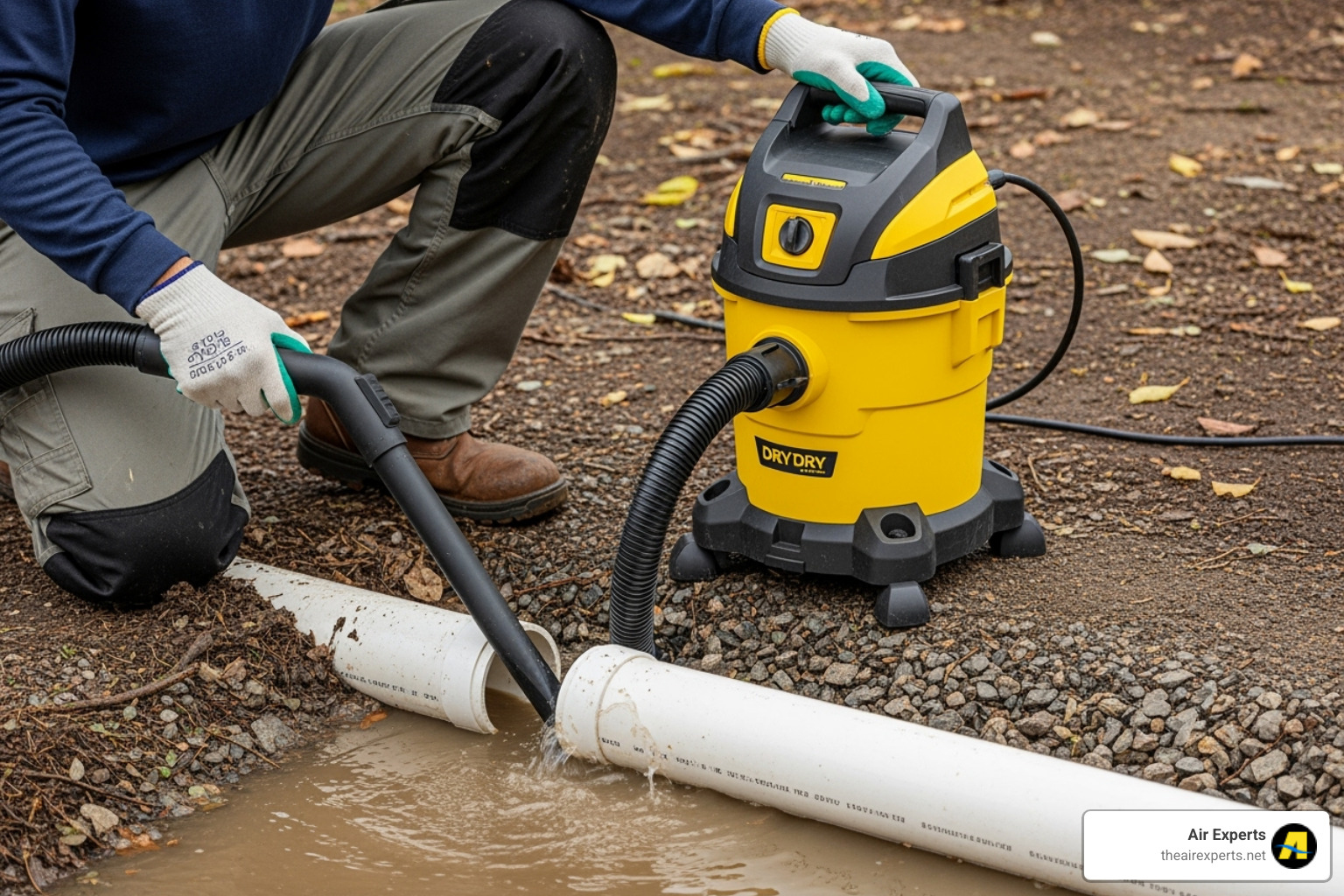
Start by locating your condensate drain line, the 3/4- to 1-inch PVC pipe running from your indoor unit to the outside of your home.
Next, check the drain pan under the indoor unit's evaporator coil. If it's full, use your wet/dry vacuum or towels to remove the standing water and clean out any visible sludge.
Now, use your wet/dry vacuum to pull out the clog. Go outside to the drain line's exit point. Attach your vacuum hose to the opening, using duct tape to create a tight seal for maximum suction. Run the vacuum for 2-3 minutes. This method pulls the clog out rather than pushing it deeper.
After vacuuming, perform a vinegar flush. Find the "vent tee" (a T-shaped fitting with a cap) near your indoor unit. Remove the cap and pour in a mixture of one cup of distilled white vinegar and one cup of water.
Avoid using harsh chemicals like bleach-based cleaners, which can corrode your pipes and drain pan. Vinegar is gentle on your equipment but tough on the algae and mold causing the blockage.
Let the vinegar solution sit for at least 30 minutes to break down any remaining gunk. Finally, test your handiwork by pouring clean water down the line. If it flows freely outside, you've cleared the clog. Replace the cap, restore power, and turn your AC back on.
If water still doesn't flow, it's time to call a professional.
When to Call a Professional for a Clogged AC Drain Line
While DIY fixes are satisfying, some AC drain line clogged situations require a professional. Knowing when to call for help is key to avoiding bigger problems.
If you've tried our DIY steps and the line remains blocked, or if it clogs again within a few days, you're likely dealing with a more serious blockage deep within the system. You should also call a pro if the drain line is inaccessible or if you see significant water damage to your floors, walls, or ceiling.
Most importantly, if you notice any electrical issues near your AC unit, such as flickering lights or tripped breakers, stop immediately and call a professional. Water and electricity are a dangerous combination.
If you're simply not comfortable performing the work yourself, there's peace of mind in knowing a certified technician is handling the job correctly. At Air Experts, we provide honest service without upselling, ensuring your system gets exactly what it needs.
The Risks of Ignoring a Clog
An AC drain line clogged problem will not fix itself; it will only get worse. Ignoring it can lead to severe consequences.
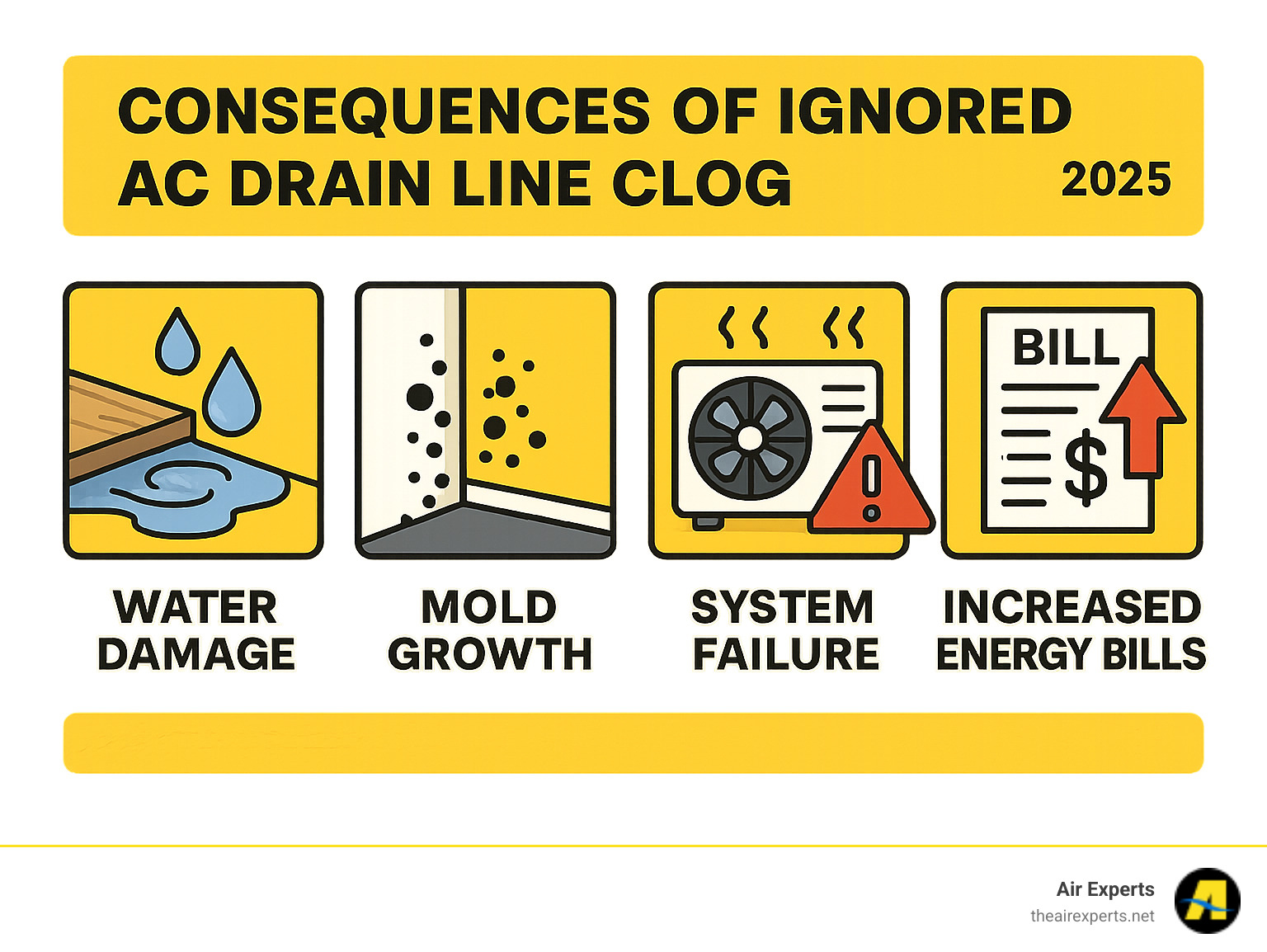
- Water Damage: An overflowing drain pan can seep into your home's structure, warping floors, ruining drywall, and leading to thousands in repair costs.
- Mold and Mildew Growth: Standing water creates a breeding ground for mold, which can cause musty odors and pose health risks, especially for those with allergies or respiratory issues.
- Rust and Corrosion: Constant moisture can corrode metal AC components, leading to a shortened AC system lifespan and expensive part replacements.
- Complete System Failure: If the safety float switch fails or the problem is ignored, water can damage critical electrical components, leading to a dead AC system when you need it most.
What a Professional Technician Will Do
When you call Air Experts for an AC drain line clogged, our certified technicians use tools and expertise that go beyond a typical DIY fix. We start with a thorough diagnosis to find the root cause of the problem.
Our technicians use advanced tools to clear stubborn clogs safely. This includes high-pressure nitrogen, specialized vacuums, hydro-jetting equipment, and professional-grade, system-safe cleaners. These methods effectively remove hardened buildup that DIY attempts can't.
Beyond just clearing the clog, we perform a full system inspection. We check the evaporator coil, drain pan, connections, and the slope of the drain line to identify and address underlying issues. This comprehensive approach helps prevent future problems and extends the life of your system.
Prevention is Key: How to Keep Your Drain Line Clear
An ounce of prevention is the best way to avoid an AC drain line clogged emergency. Simple, proactive maintenance can save you from costly repairs and the headache of a broken AC in the middle of an Alabama summer.
Regular maintenance checks and annual professional service will help your AC system run more efficiently, last longer, and save you money on emergency repairs.
Routine Maintenance Checks
Keeping your drain line clear doesn't require special skills. A few simple habits can make a huge difference.
- Perform monthly visual inspections. Look at the indoor unit's drain pan and the outdoor exit point for standing water or debris.
- Check the drain line when you change your air filter. This is a perfect monthly or quarterly reminder.
- Pour a vinegar solution down the line every three months. A 1:1 mix of distilled white vinegar and water helps prevent algae and mold growth. Pour it into the vent tee, let it sit for 30 minutes, and flush with clean water.
- Keep the outdoor exit point clear. Remove any leaves, grass clippings, or dirt that could block the end of the pipe.
The Power of Annual Tune-Ups
While DIY checks are helpful, nothing replaces a professional annual tune-up for long-term savings and peace of mind.
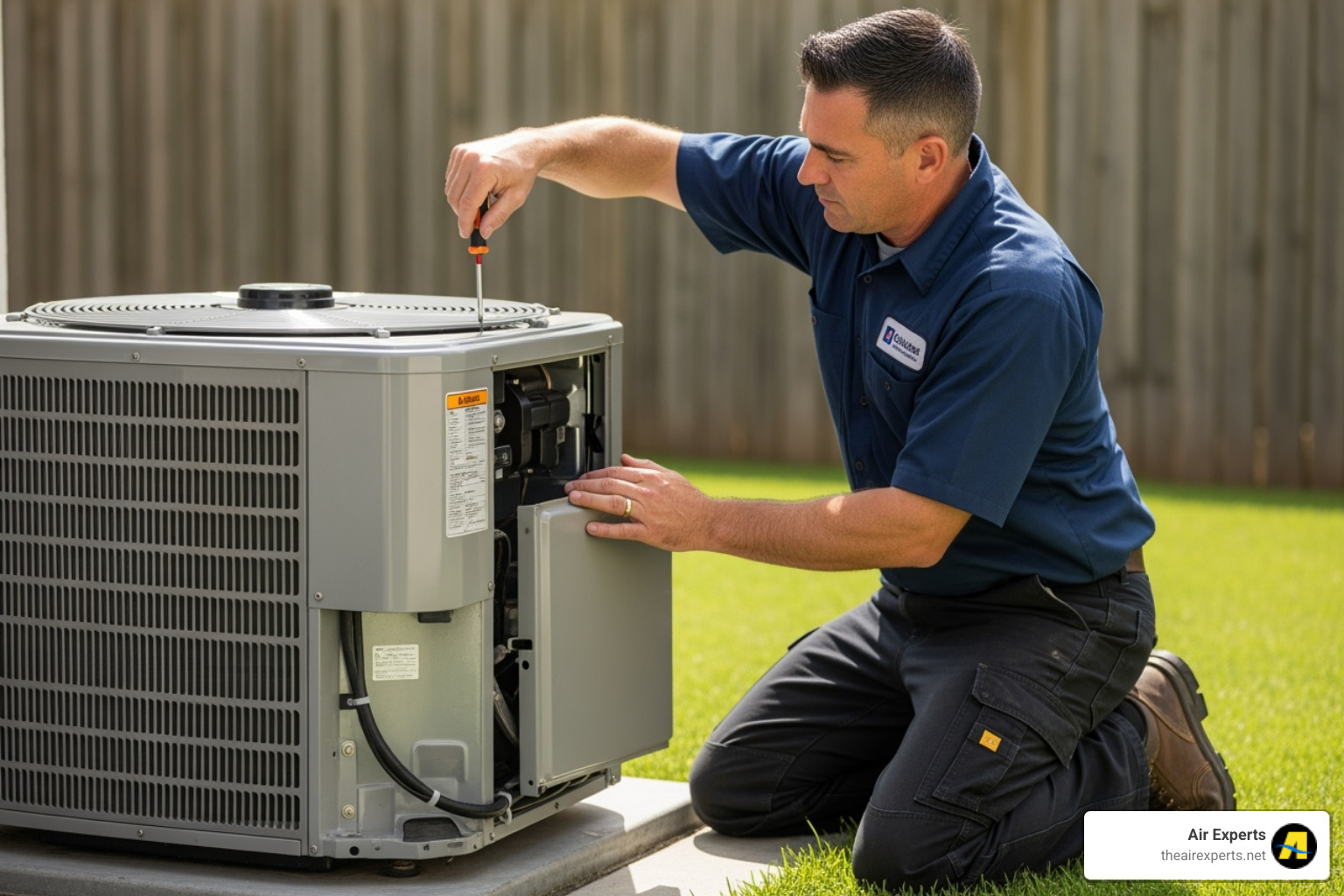
During an annual visit, our technicians perform a professional cleaning of the entire drain system with specialized tools. Our comprehensive component evaluation also covers refrigerant levels, electrical connections, and safety switches to ensure peak efficiency.
This professional attention prevents future clogs by addressing root causes and extends your system's lifespan. A well-maintained AC runs more efficiently, lowering energy bills and reducing the risk of unexpected breakdowns. The cost of preventative care is a fraction of what you'd pay for emergency repairs or premature system replacement.
Ready to give your AC system the care it deserves? Schedule your AC repair in Birmingham, AL and let our team help keep your drain line flowing freely all year long.
Frequently Asked Questions about Clogged AC Drain Lines
Dealing with an AC drain line clogged can bring up many questions. Here are answers to the most common ones we hear from homeowners in the Greater Birmingham, AL area.
How much does it cost to unclog an AC drain line?
A DIY fix is inexpensive, often just the cost of white vinegar. Professional service costs vary based on the severity and location of the clog, as well as accessibility. While it costs more upfront, professional cleaning is an investment that protects your home from thousands of dollars in potential water damage.
Can I pour bleach or hot water down my AC drain line?
We advise against it. Bleach, even diluted, can damage your system's components and create corrosive fumes. Boiling water can warp or crack PVC pipes. The safest and most effective solution for DIY cleaning is a 1:1 mixture of white distilled vinegar and water. It's tough on biological growth but gentle on your equipment.
Will a clogged drain line stop my AC from working?
Yes, and it's a good thing. Most modern AC units have a safety float switch in the drain pan. When the drain line clogs and water backs up, the rising water lifts the switch, which automatically shuts off your AC. This crucial feature prevents catastrophic water damage to your floors, walls, and ceilings. While frustrating, the shutdown is protecting your home from a much more expensive disaster.
Get Your AC Flowing Freely Again
You now have a solid understanding of why your AC's drain line is so important and how to spot the warning signs of a clog: puddles near the indoor unit, musty smells, or an AC that won't turn on. These are your system's way of asking for help.
A clear drain line is the unsung hero of your home comfort system, quietly removing gallons of moisture each day to prevent costly water damage and keep your AC running efficiently. When it's working, you don't notice it. When it's clogged, it's impossible to ignore.
For minor clogs, you now have the confidence to tackle them yourself with a wet/dry vacuum and a vinegar solution.
However, not every AC drain line clogged situation is a simple DIY fix. For recurring problems, existing water damage, or if you simply prefer a professional touch, calling an expert is the smartest move.
At Air Experts, we understand that HVAC problems are always inconvenient. That's why we serve our neighbors throughout the Greater Birmingham area with our straightforward approach: "No Upselling. No catch. Just Honest, Quality Service." Whether you're in Chelsea, Pelham, Trussville, or another of our service areas, we're here to keep you comfortable.
Don't let a clogged drain line ruin your summer. Schedule your AC repair in Birmingham, AL and let our experienced team get your system flowing freely again.
.svg)
.svg)
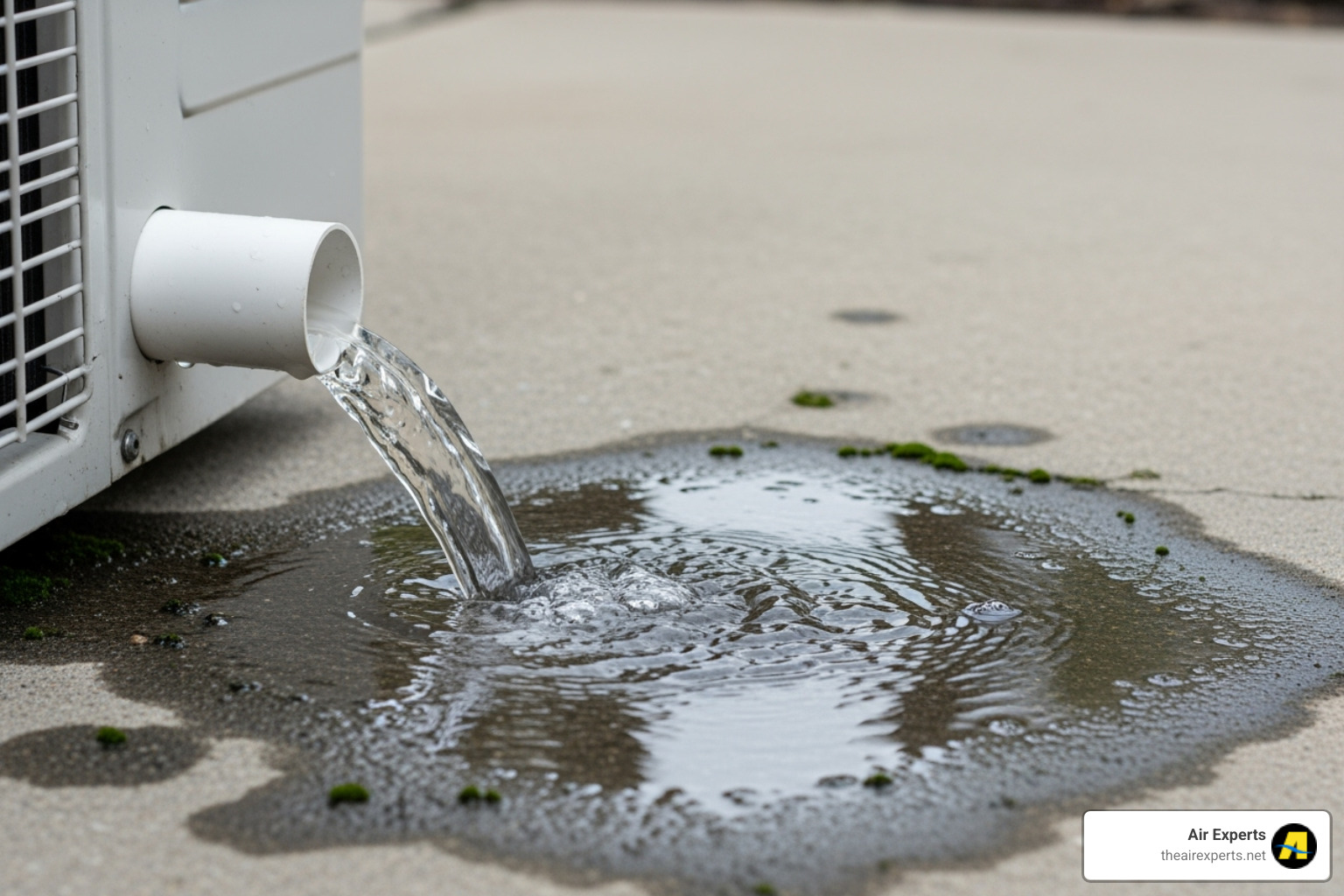






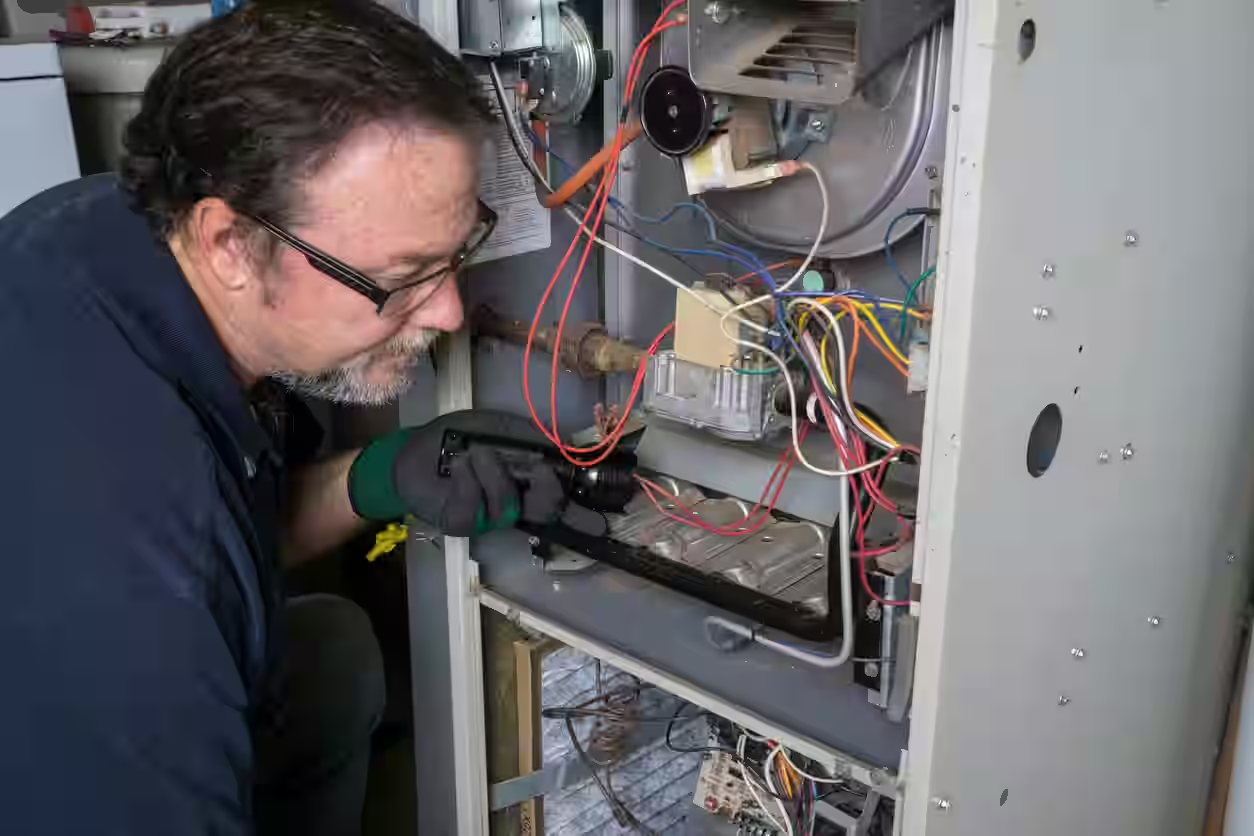
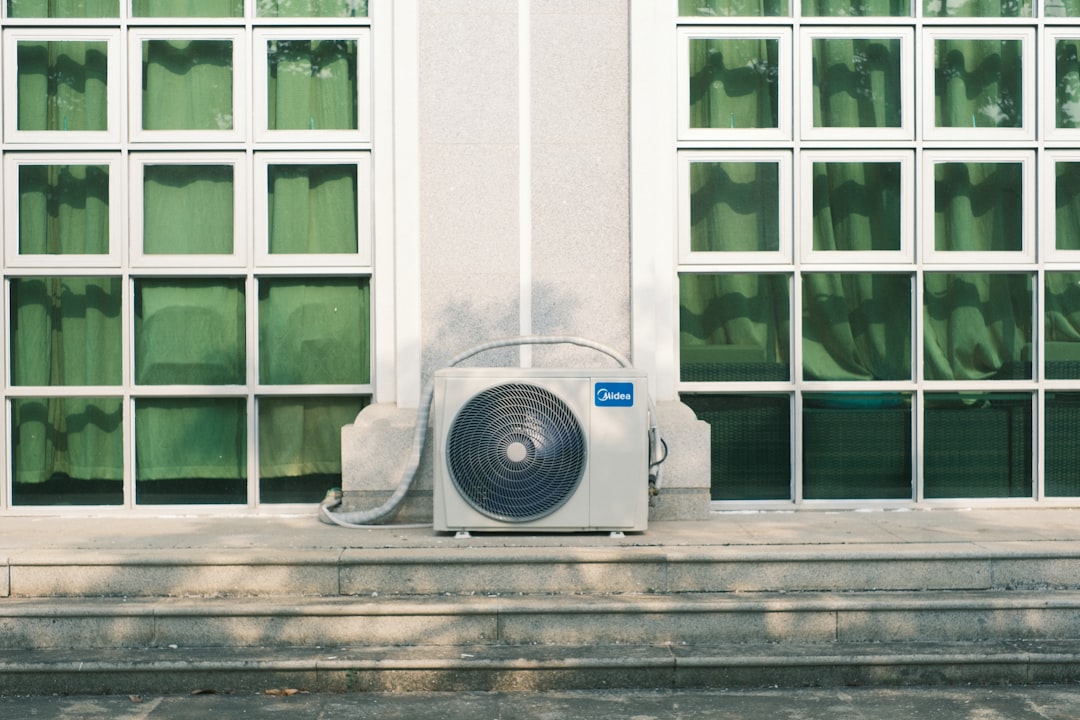

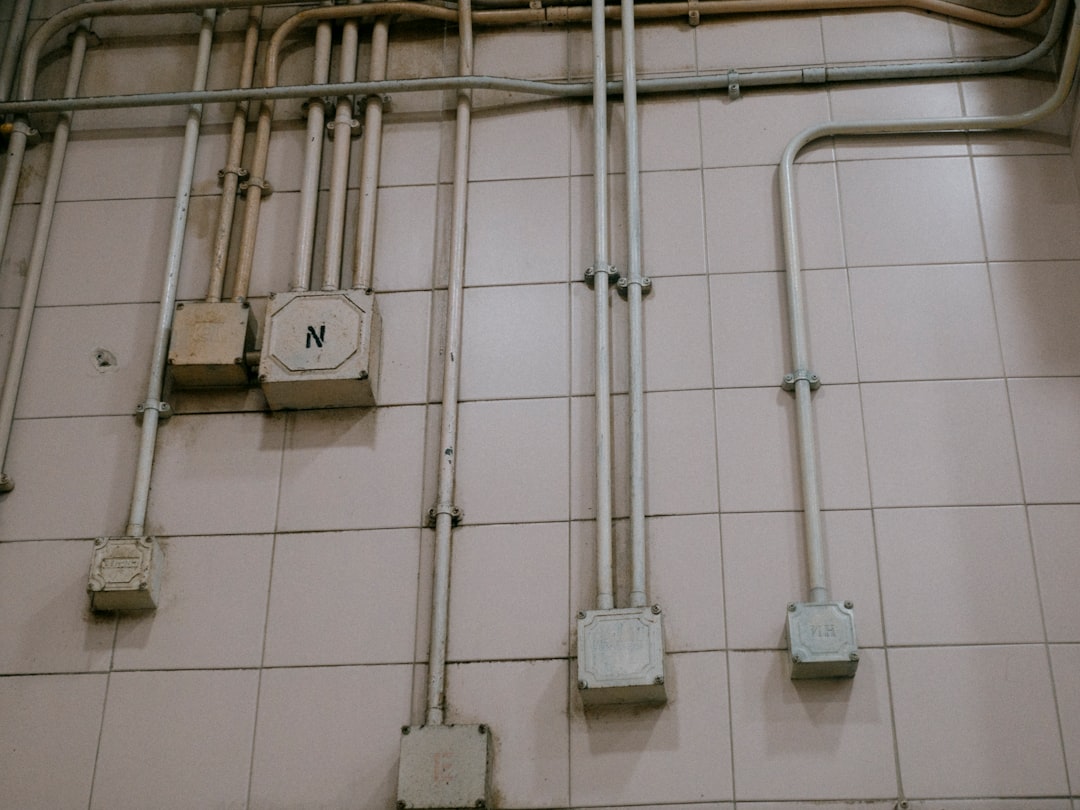


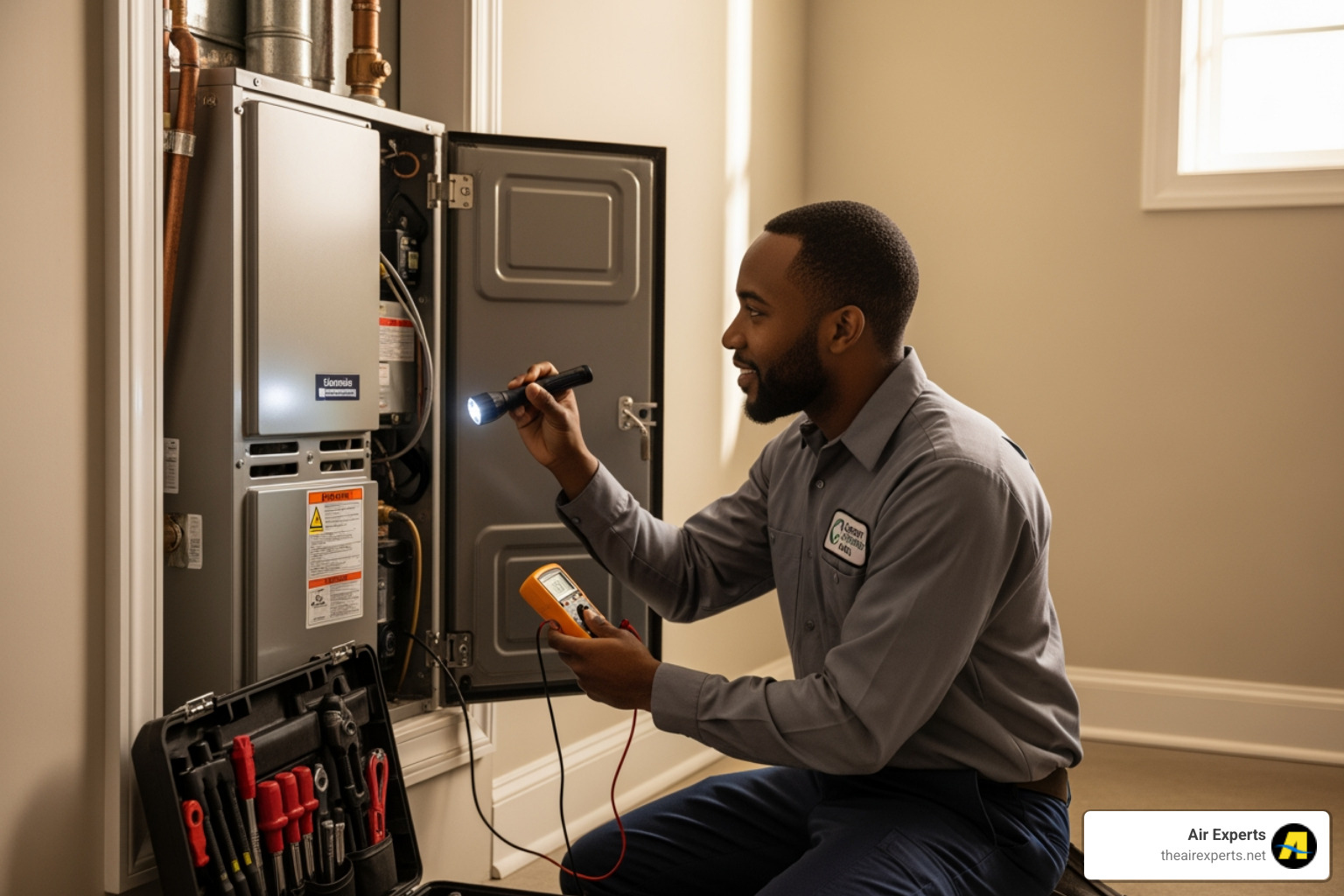
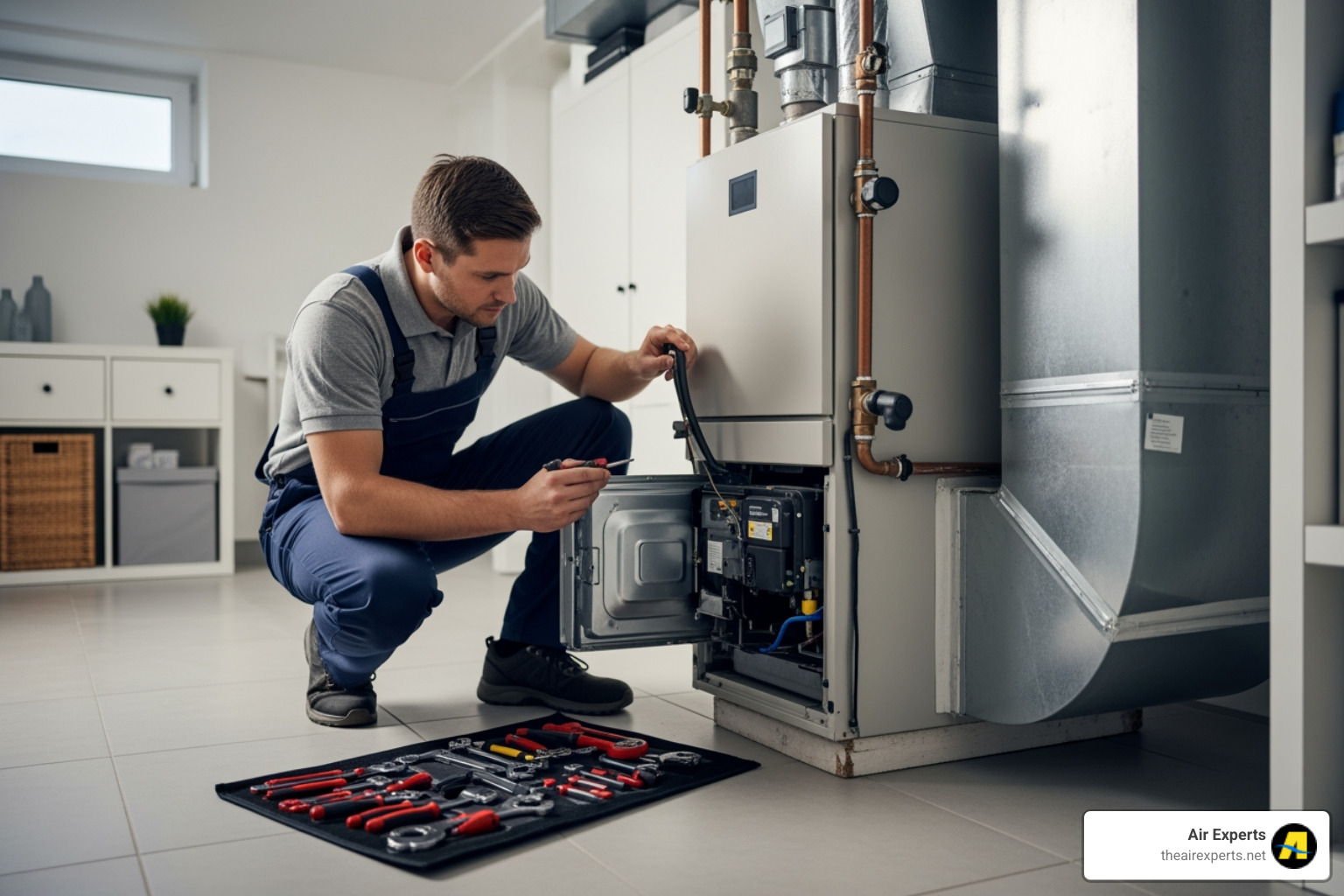
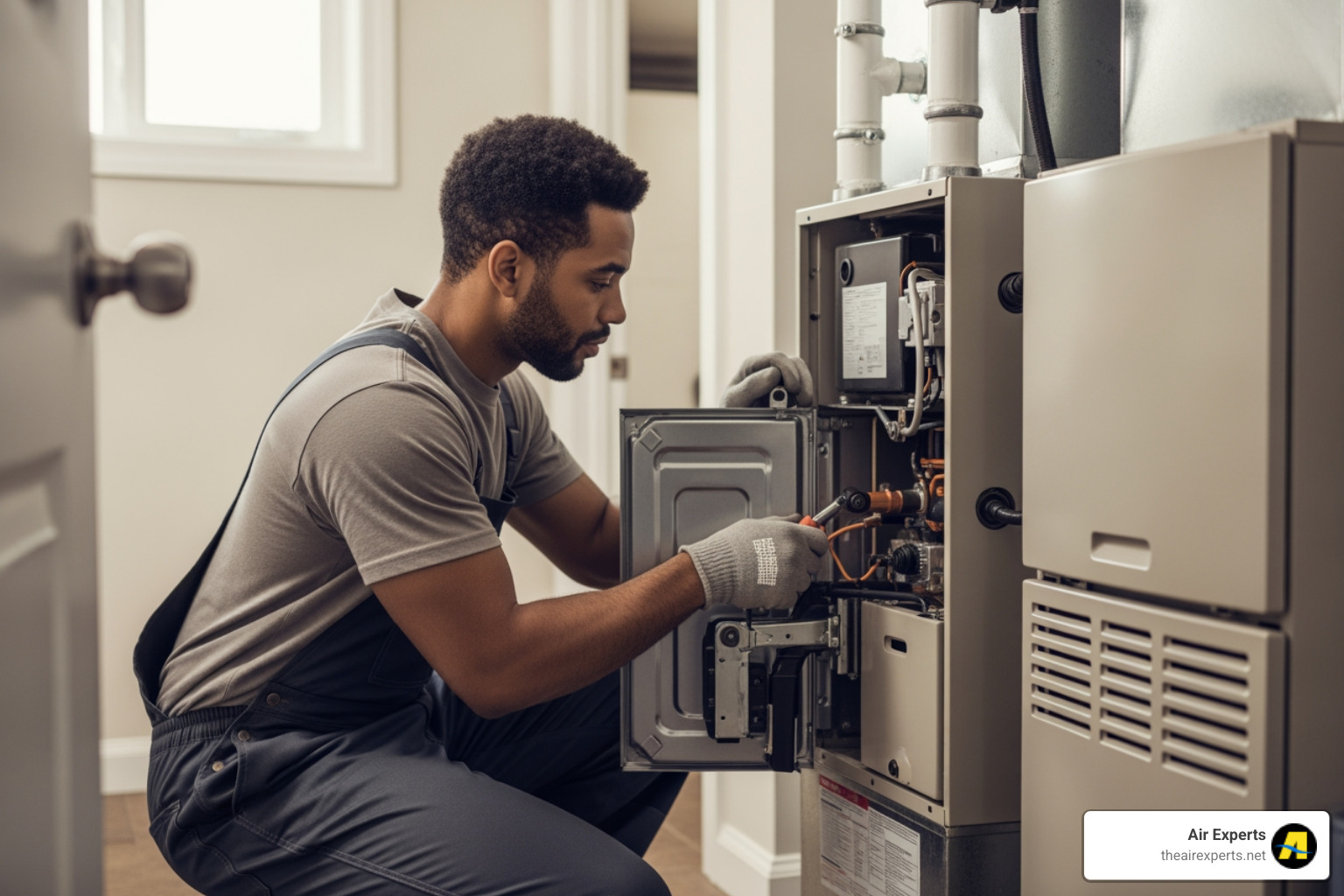


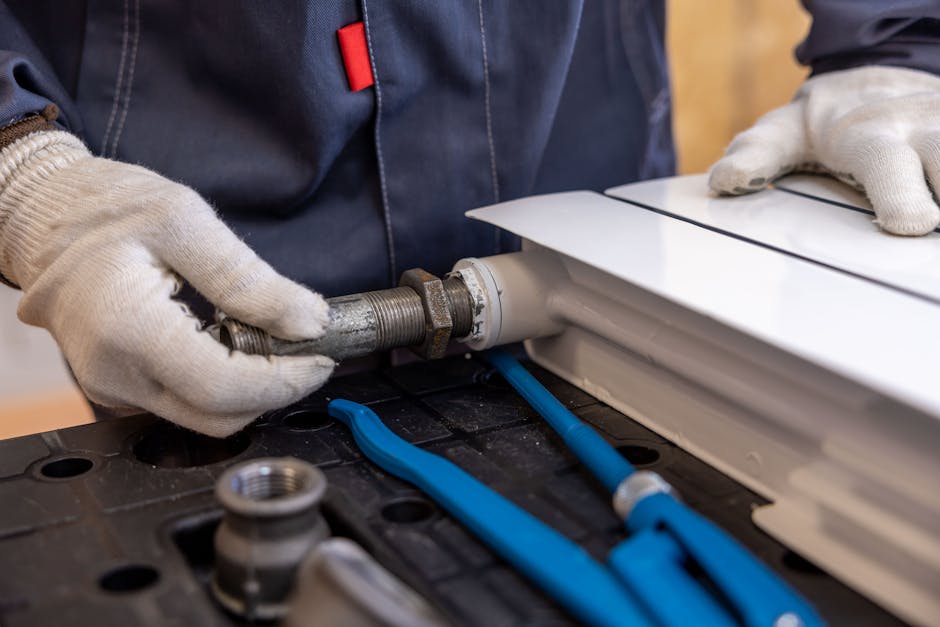







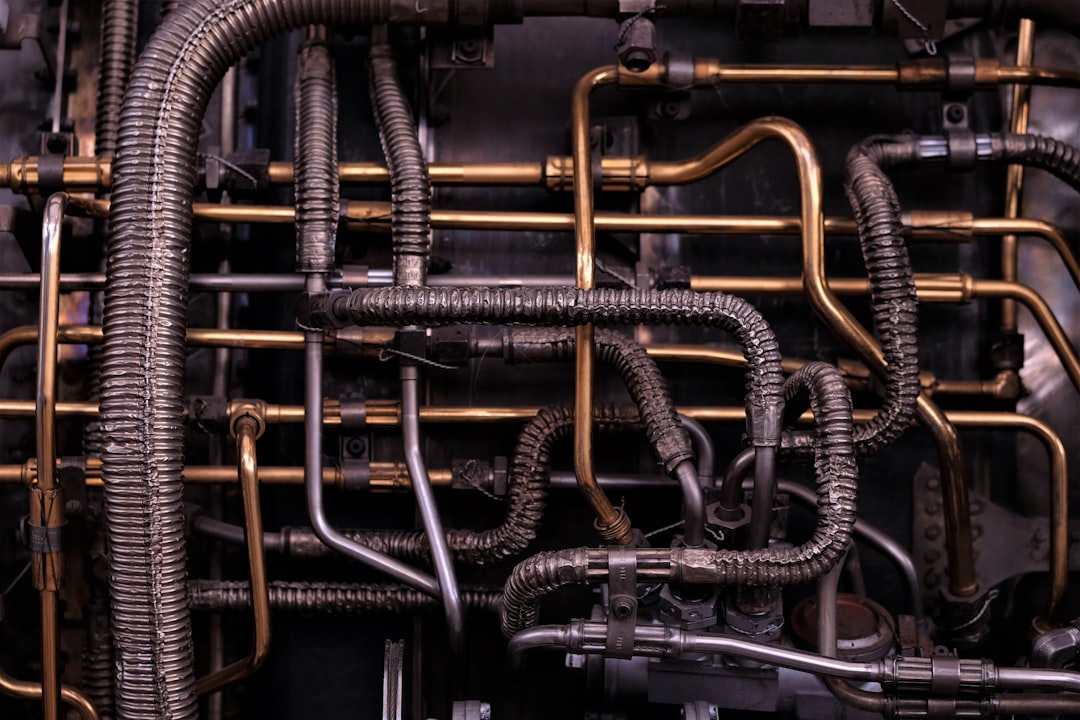
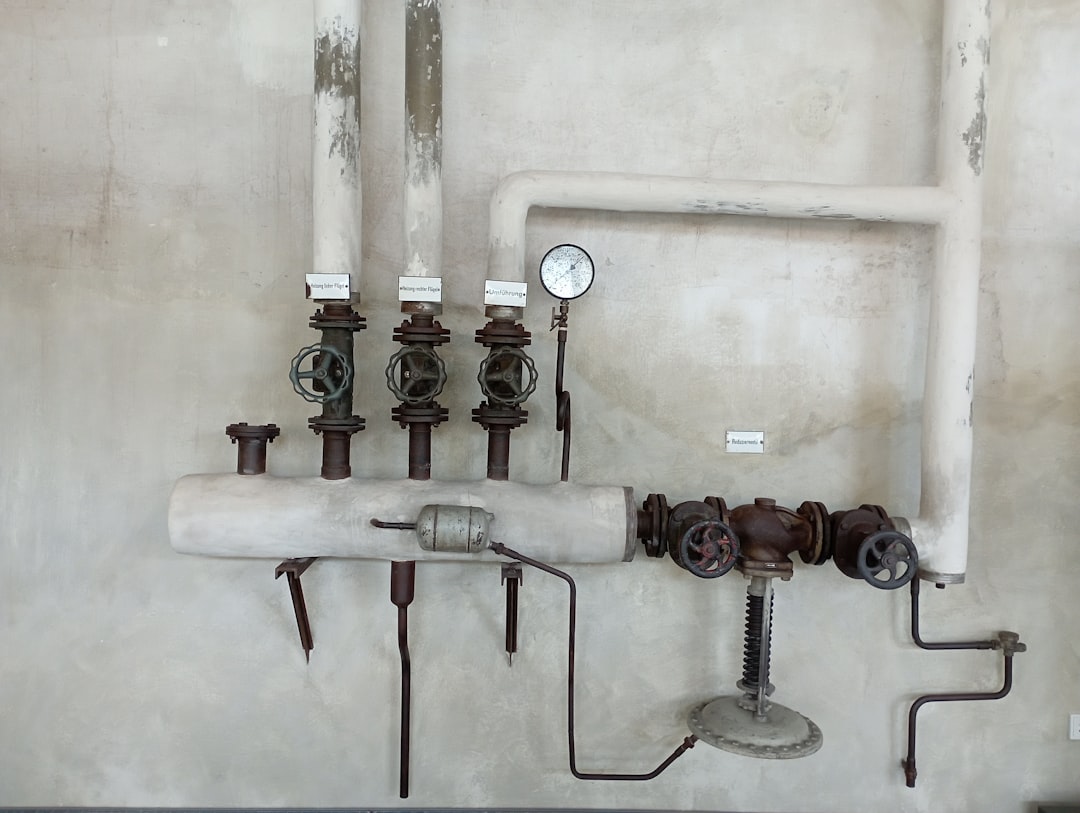







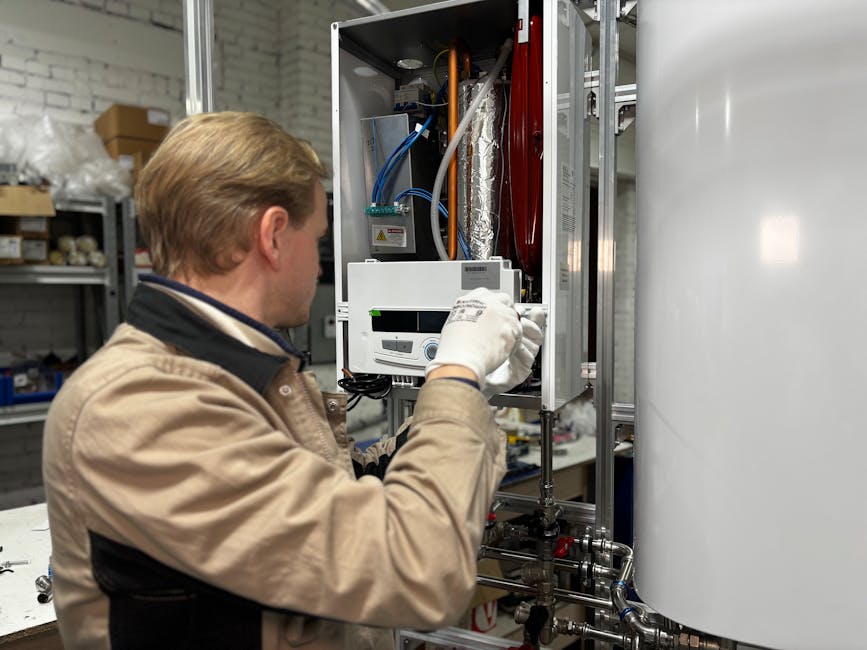
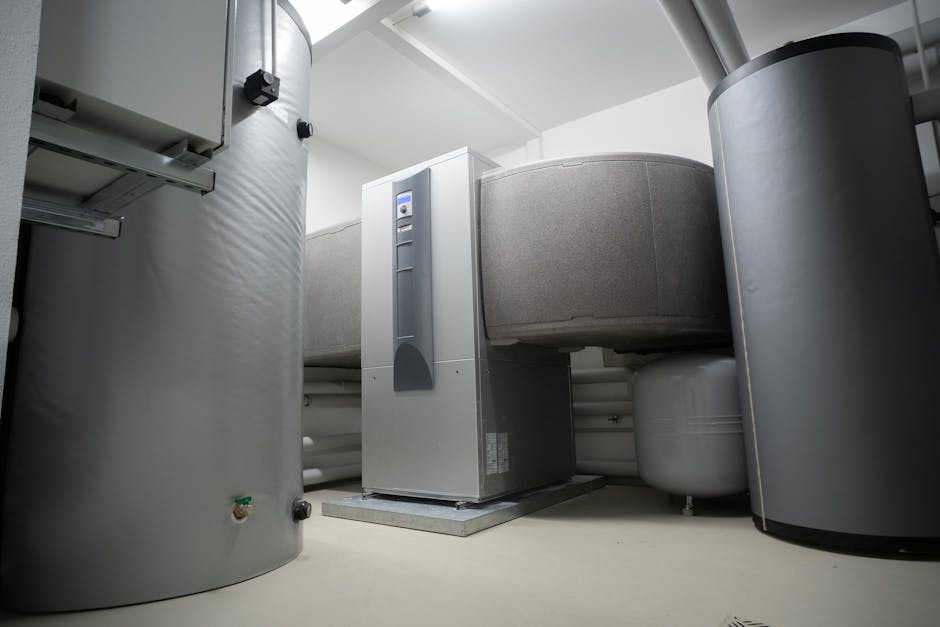
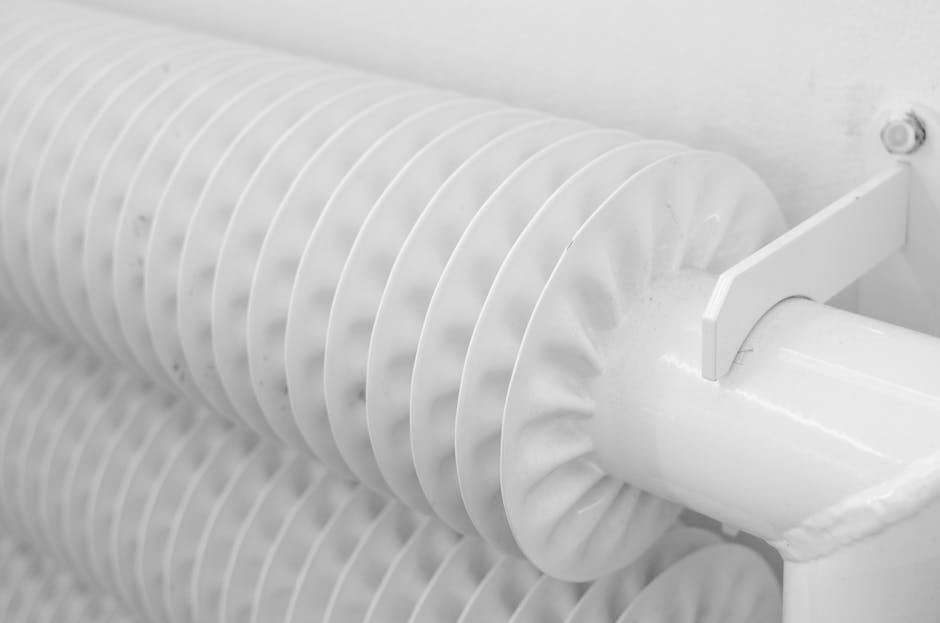
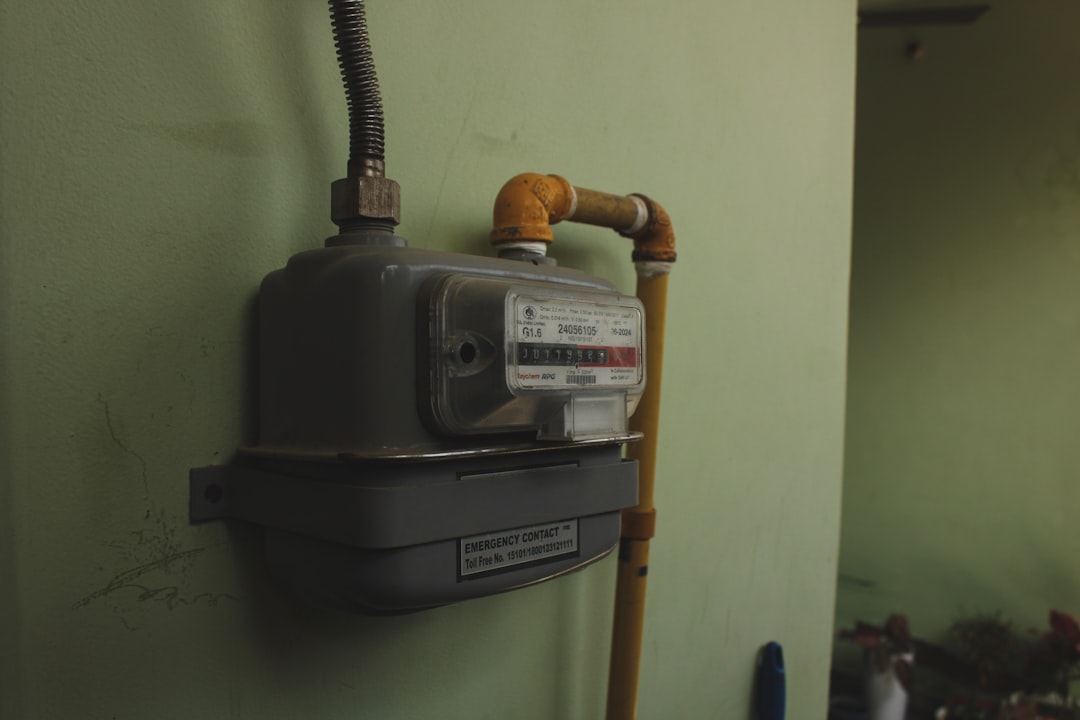
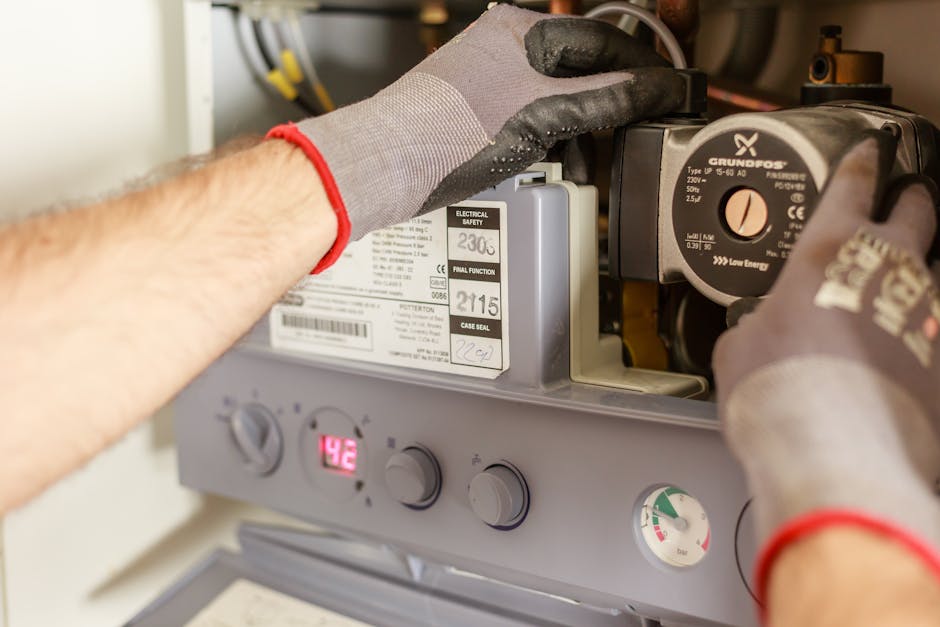
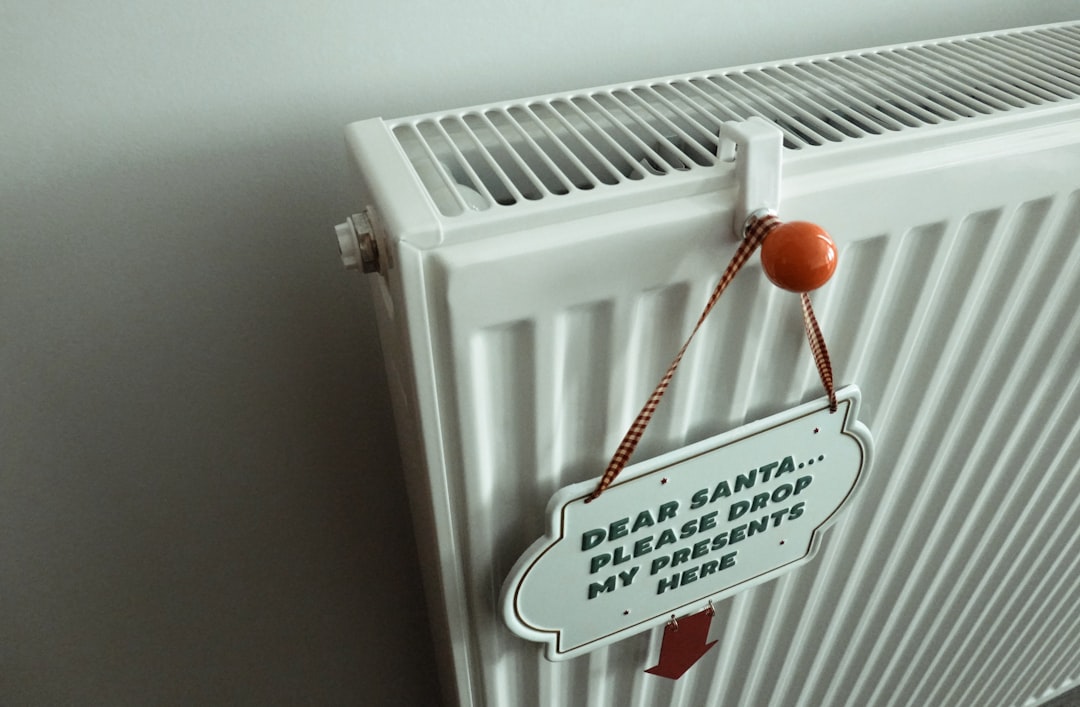
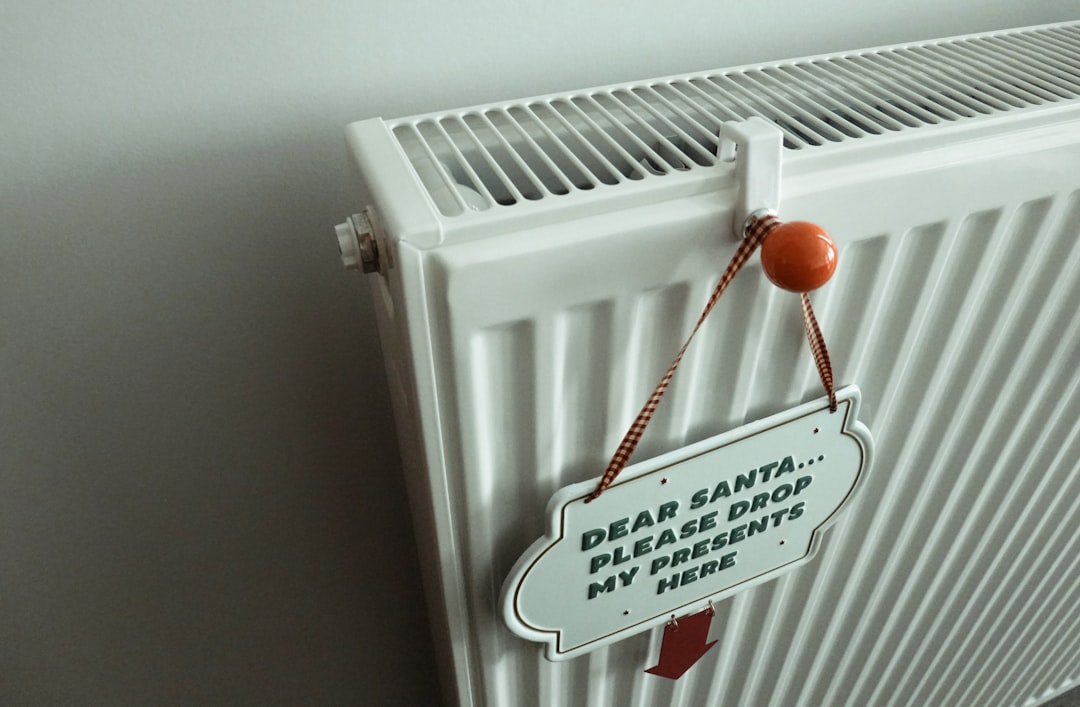


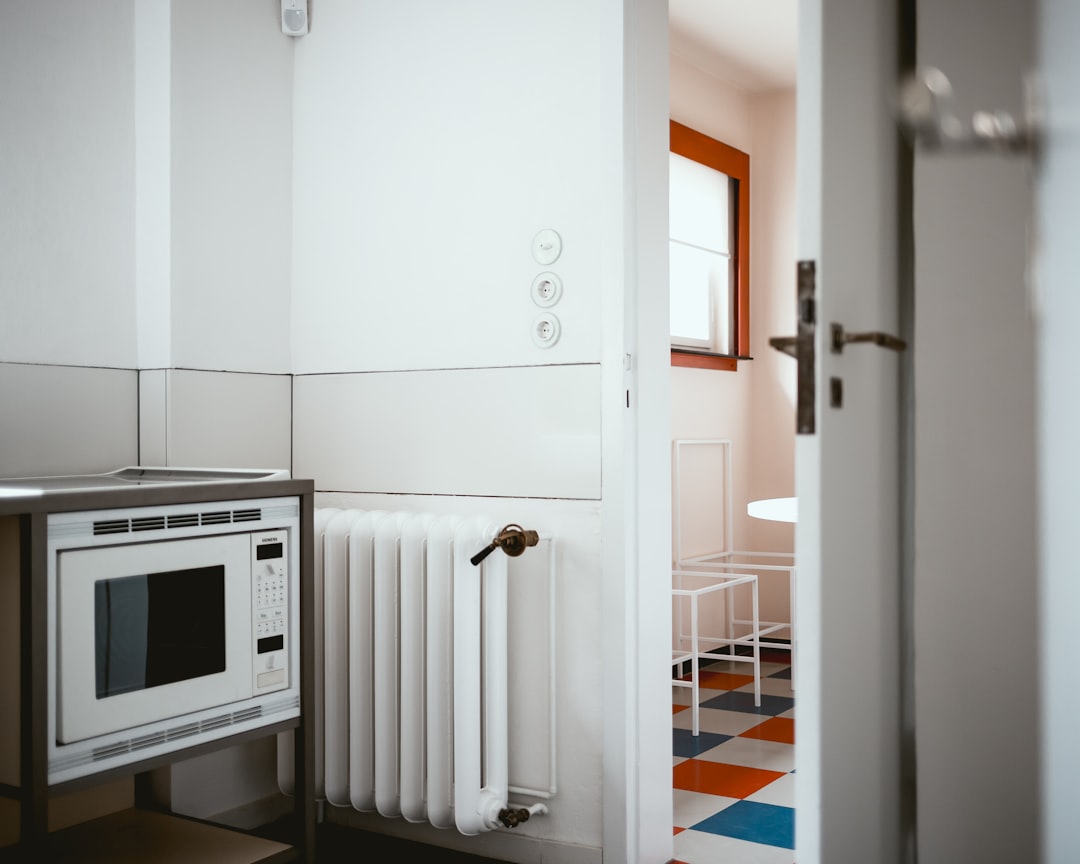
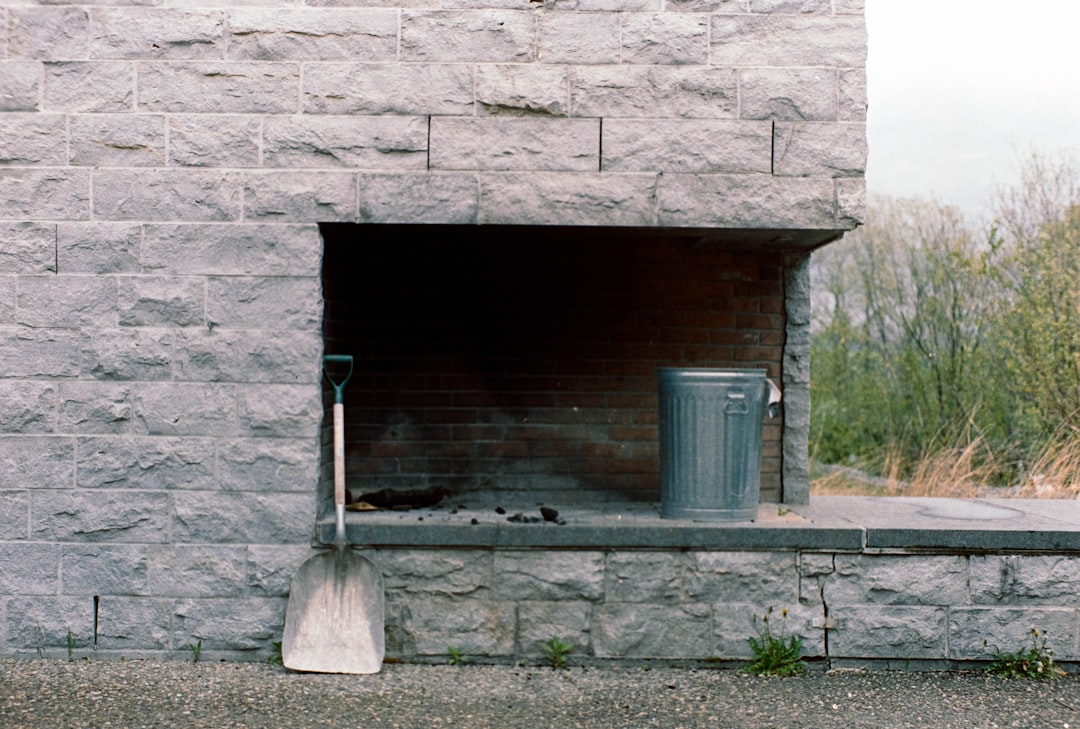


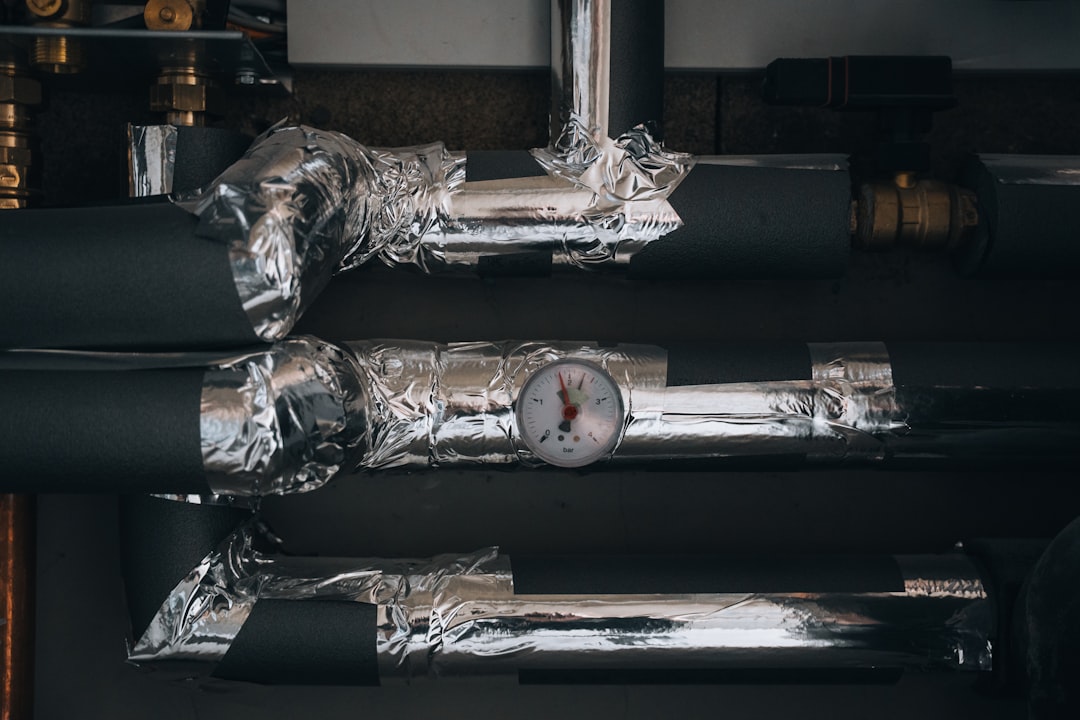

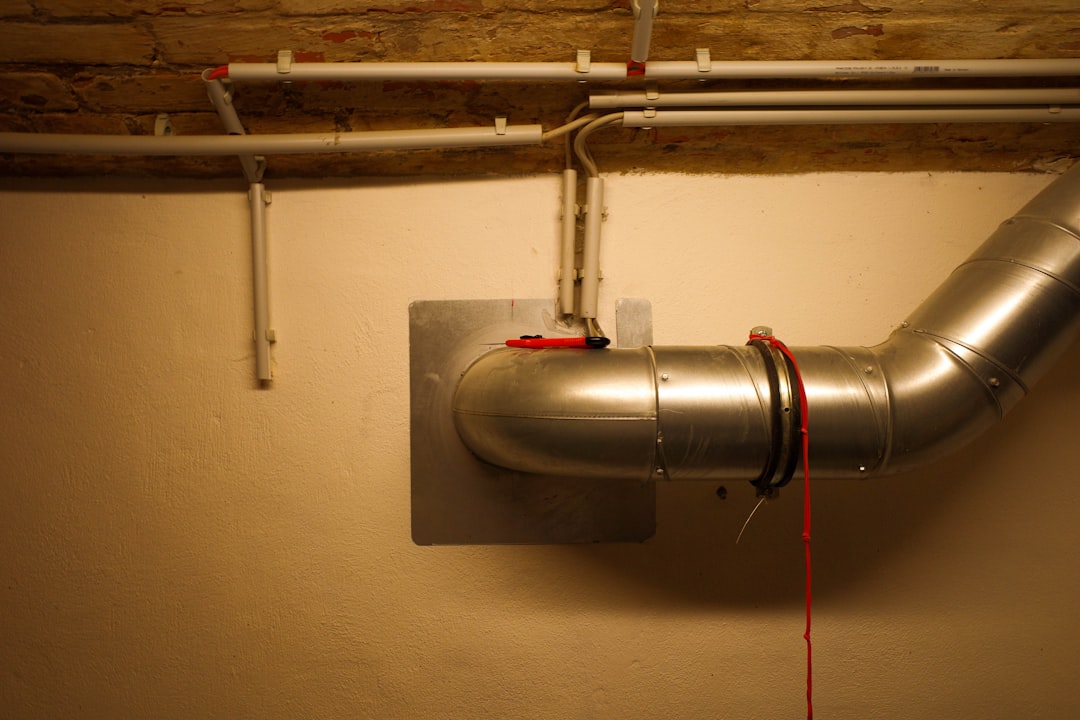



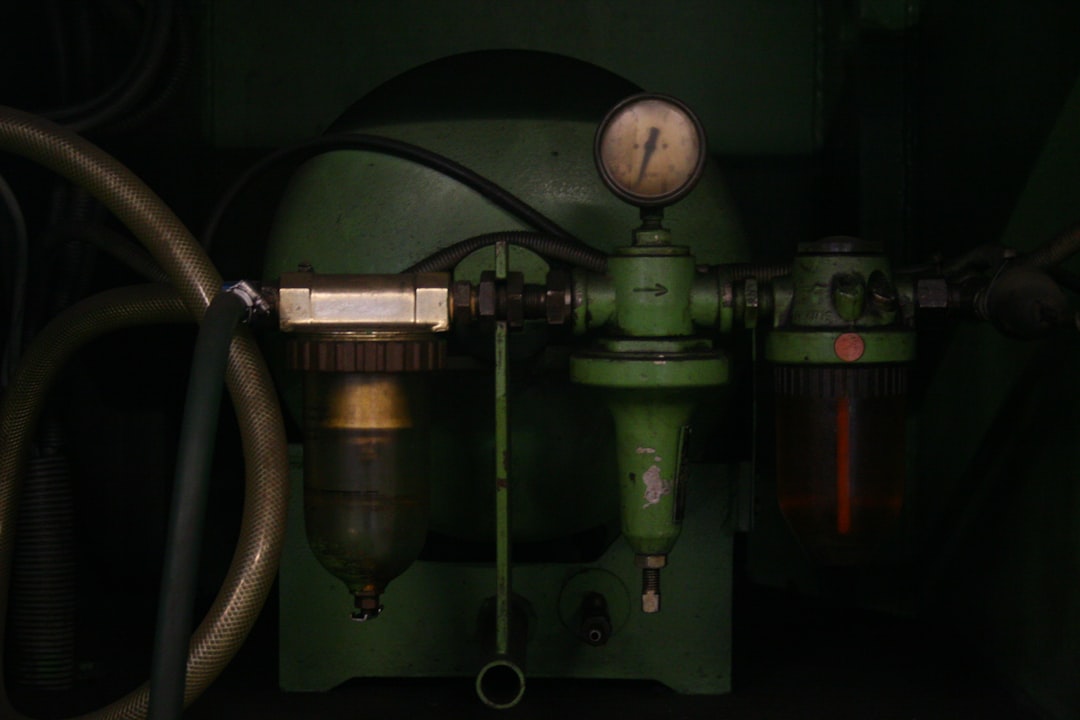
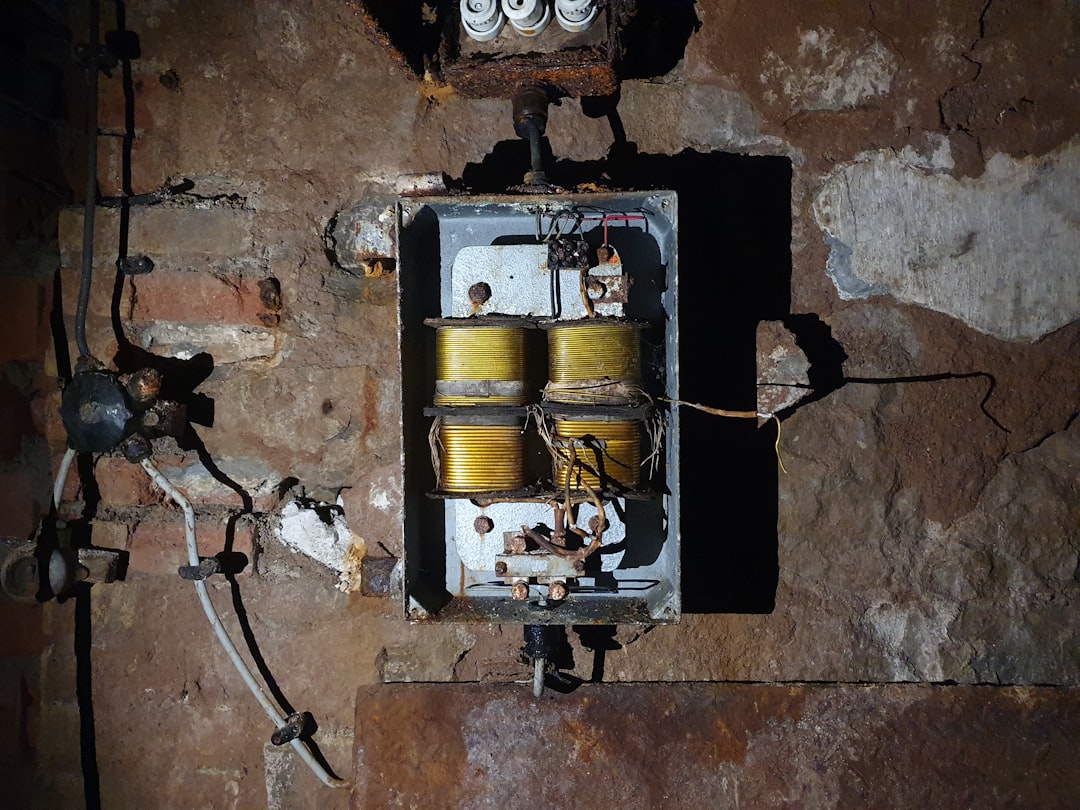
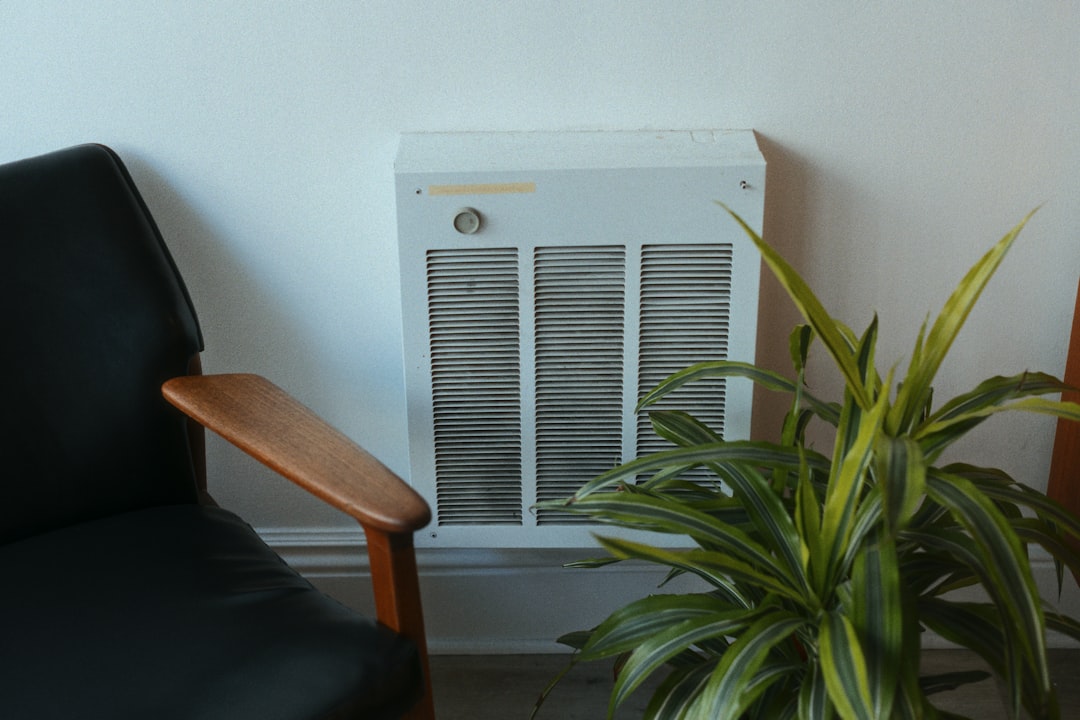
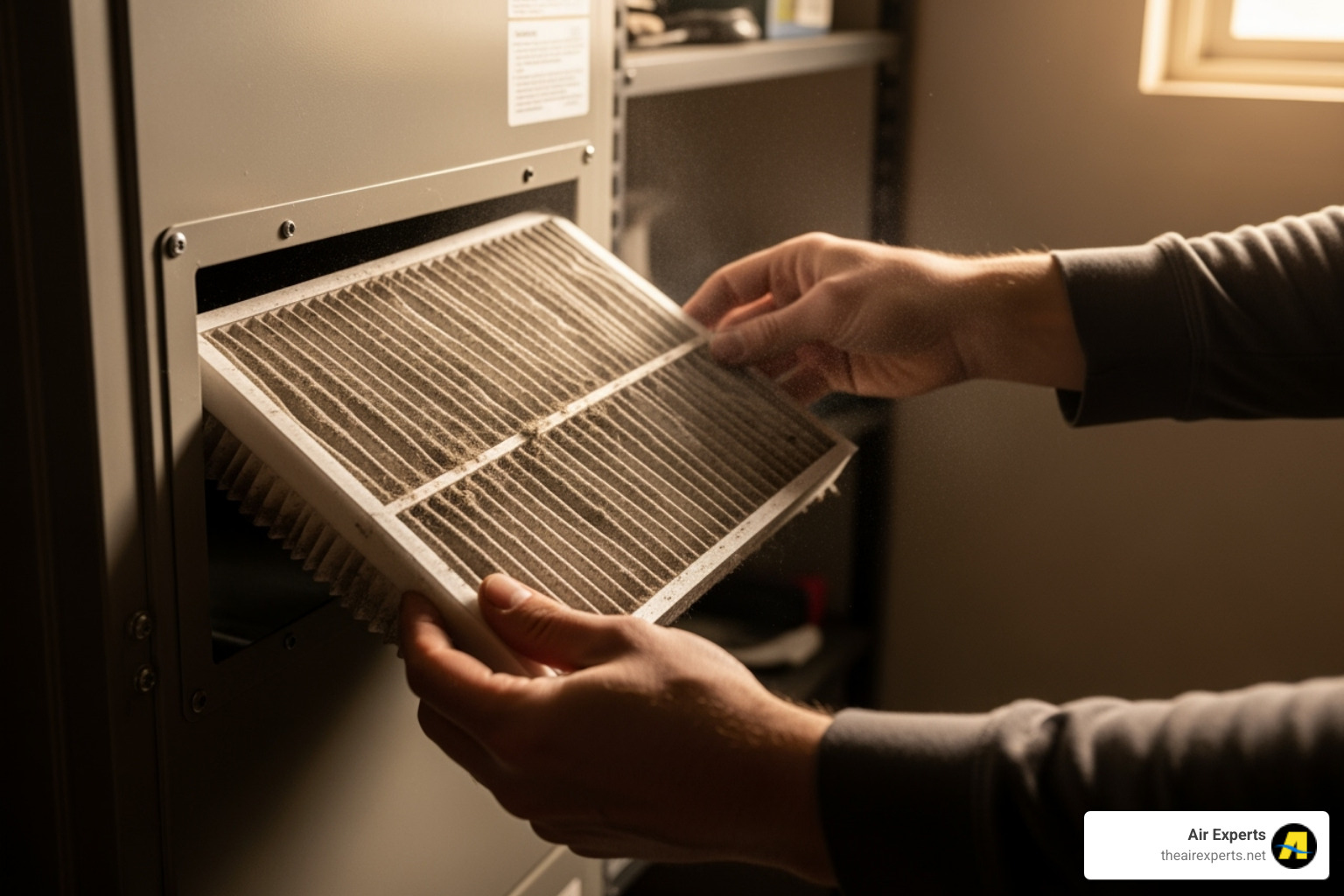
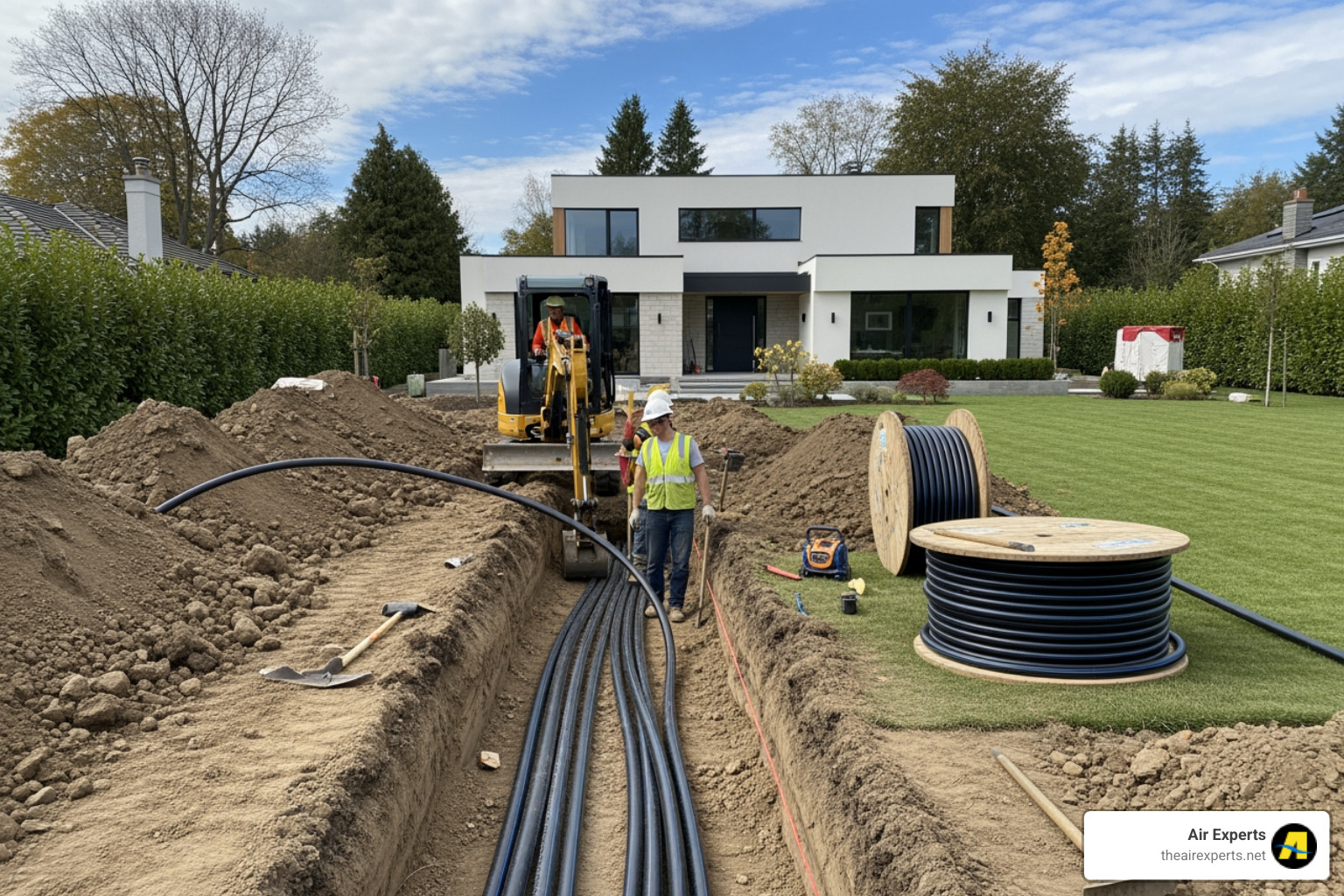

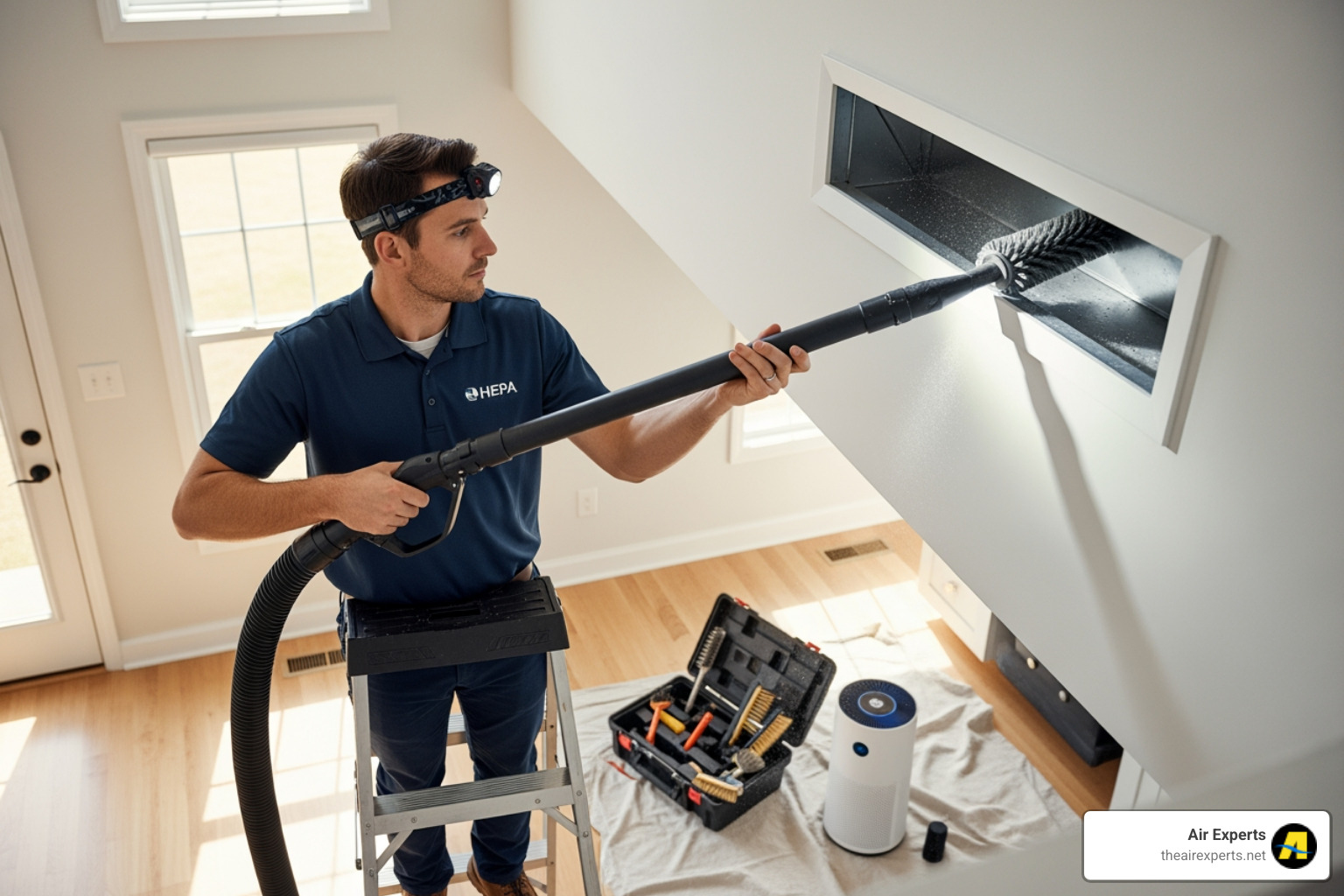


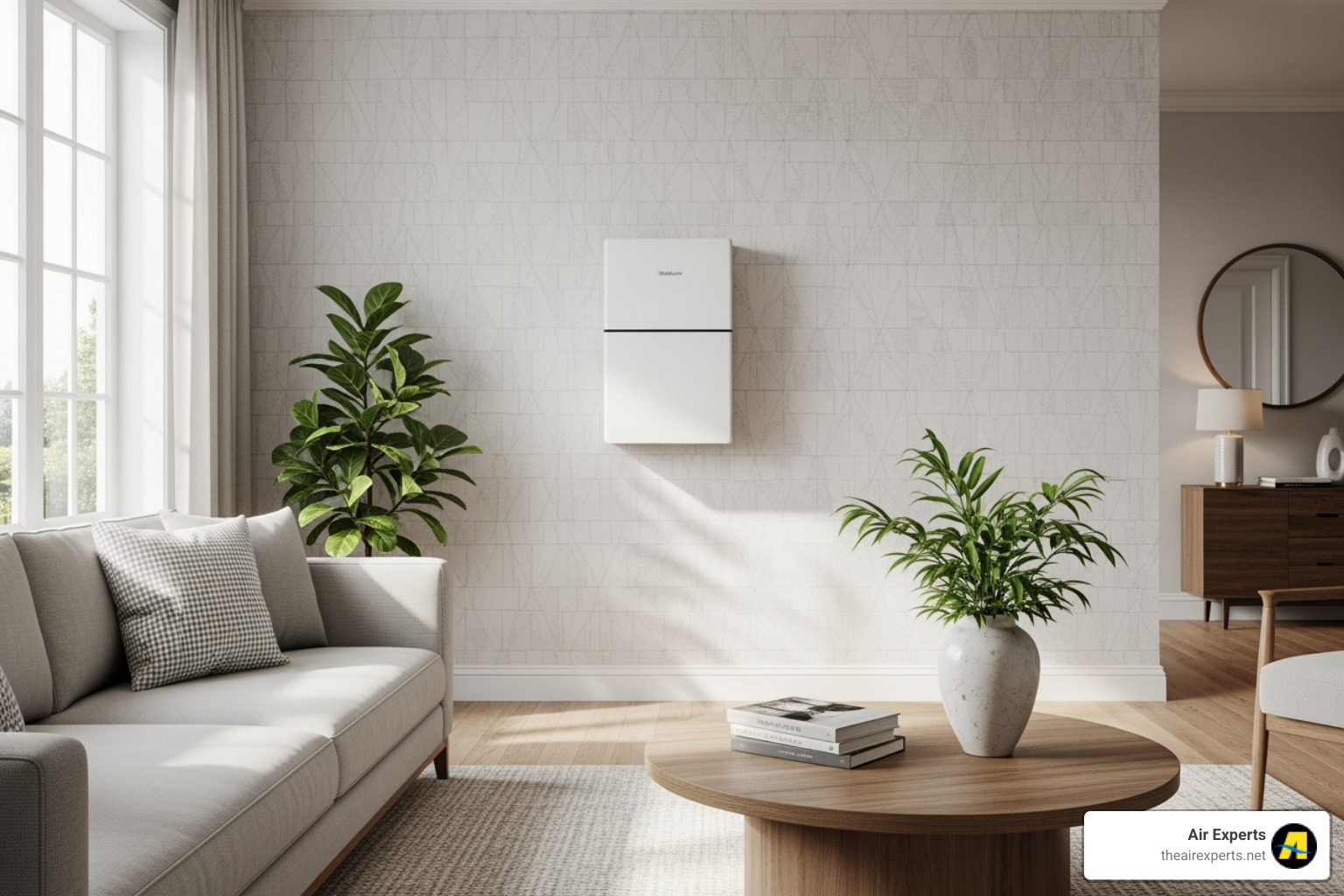

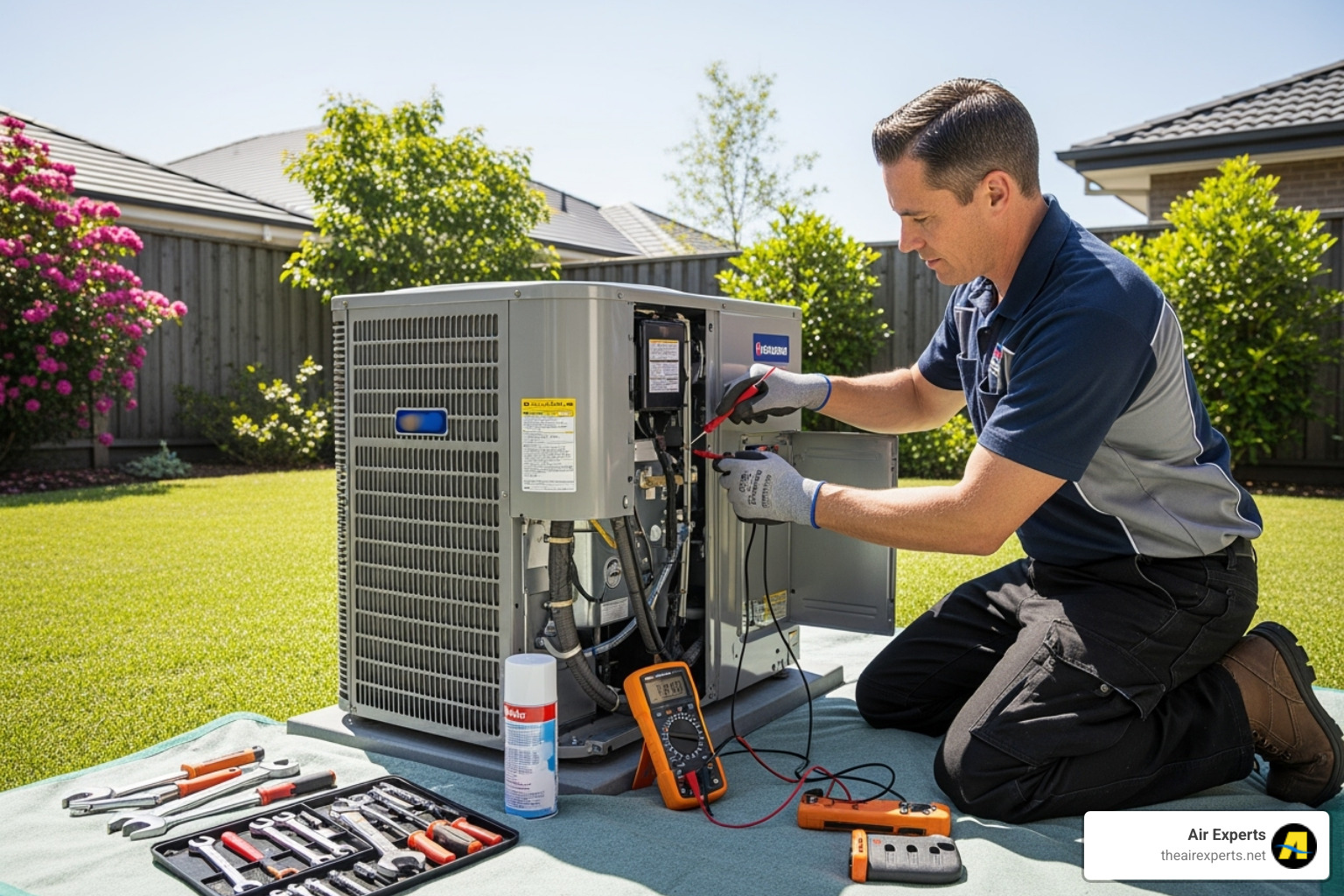
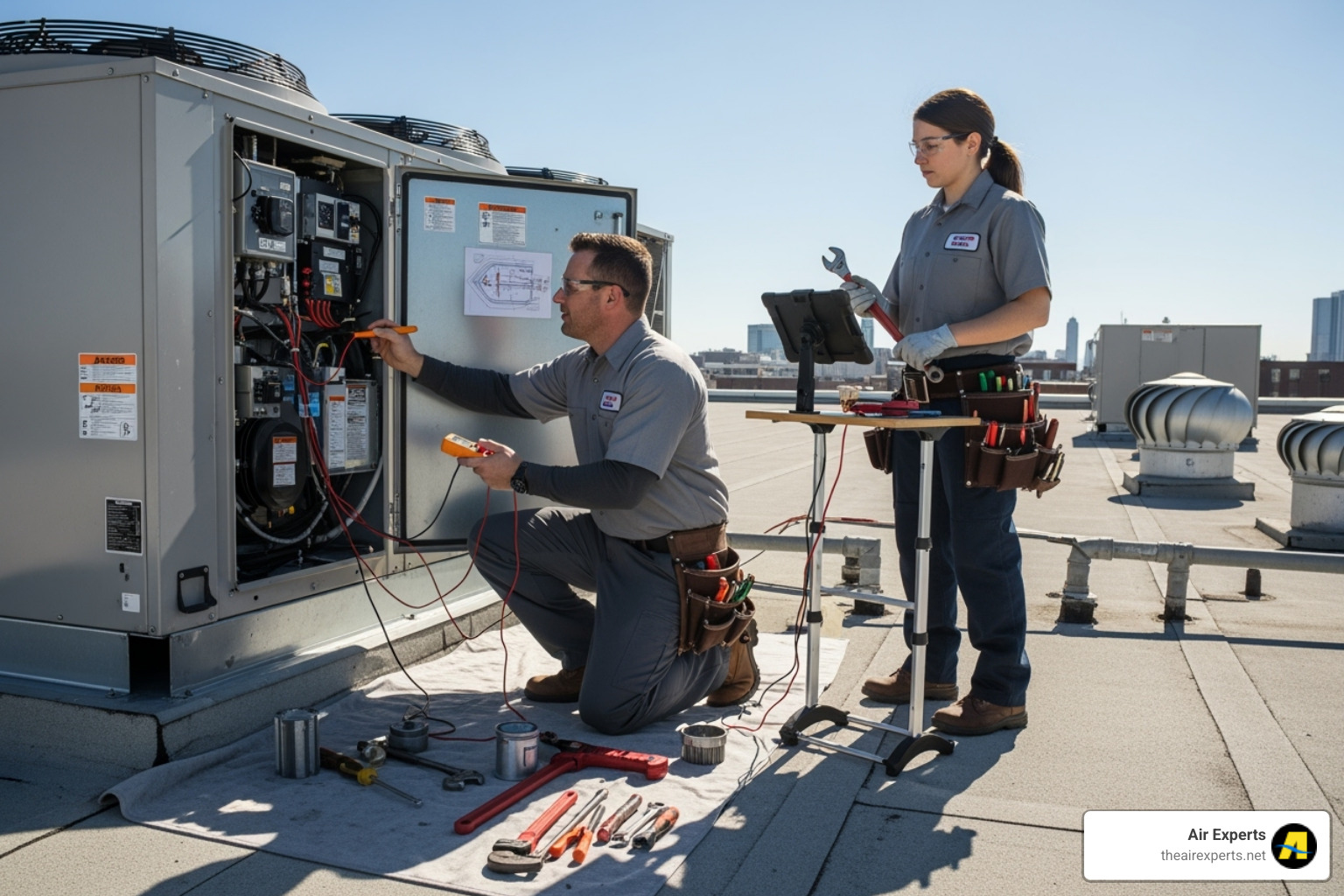
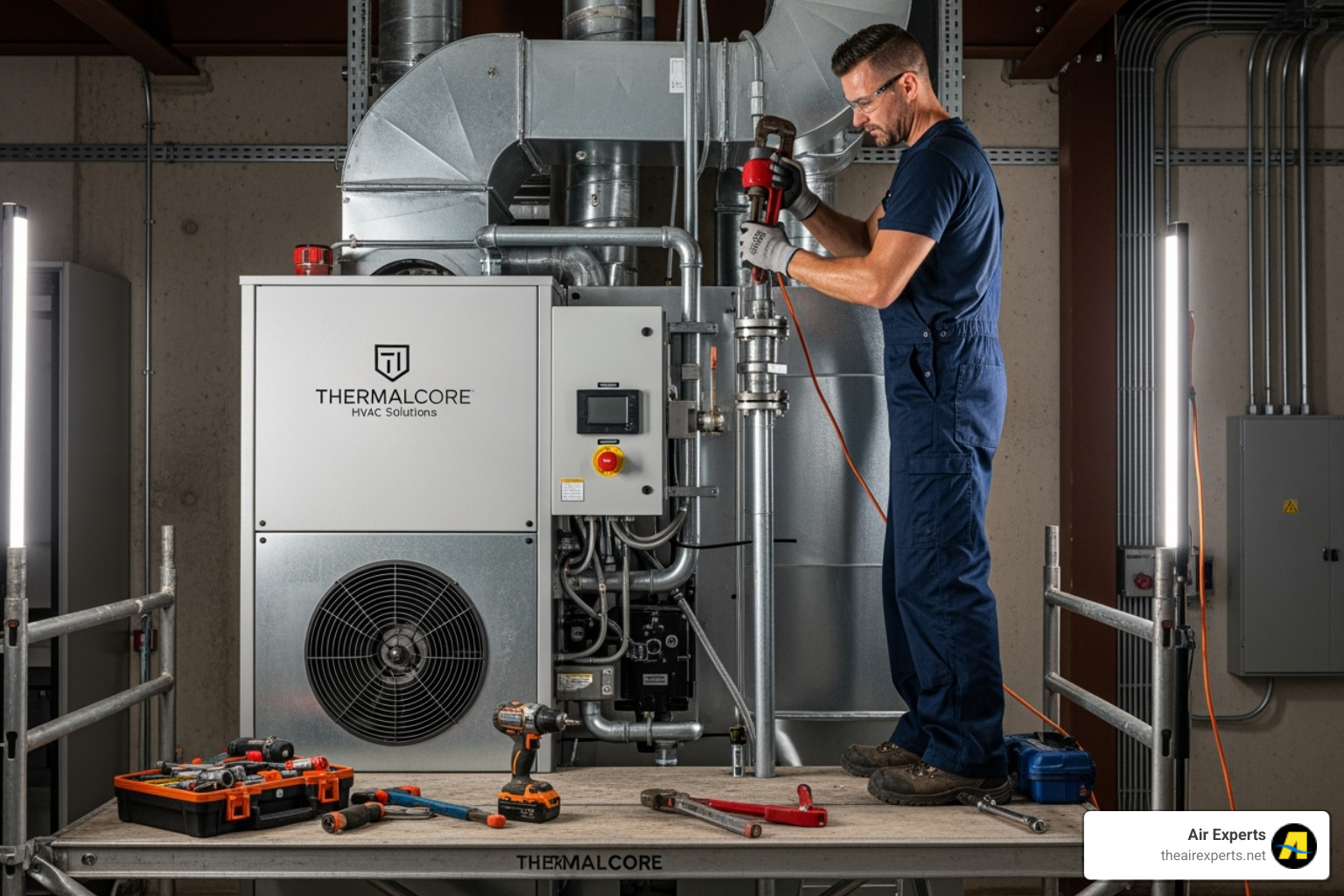
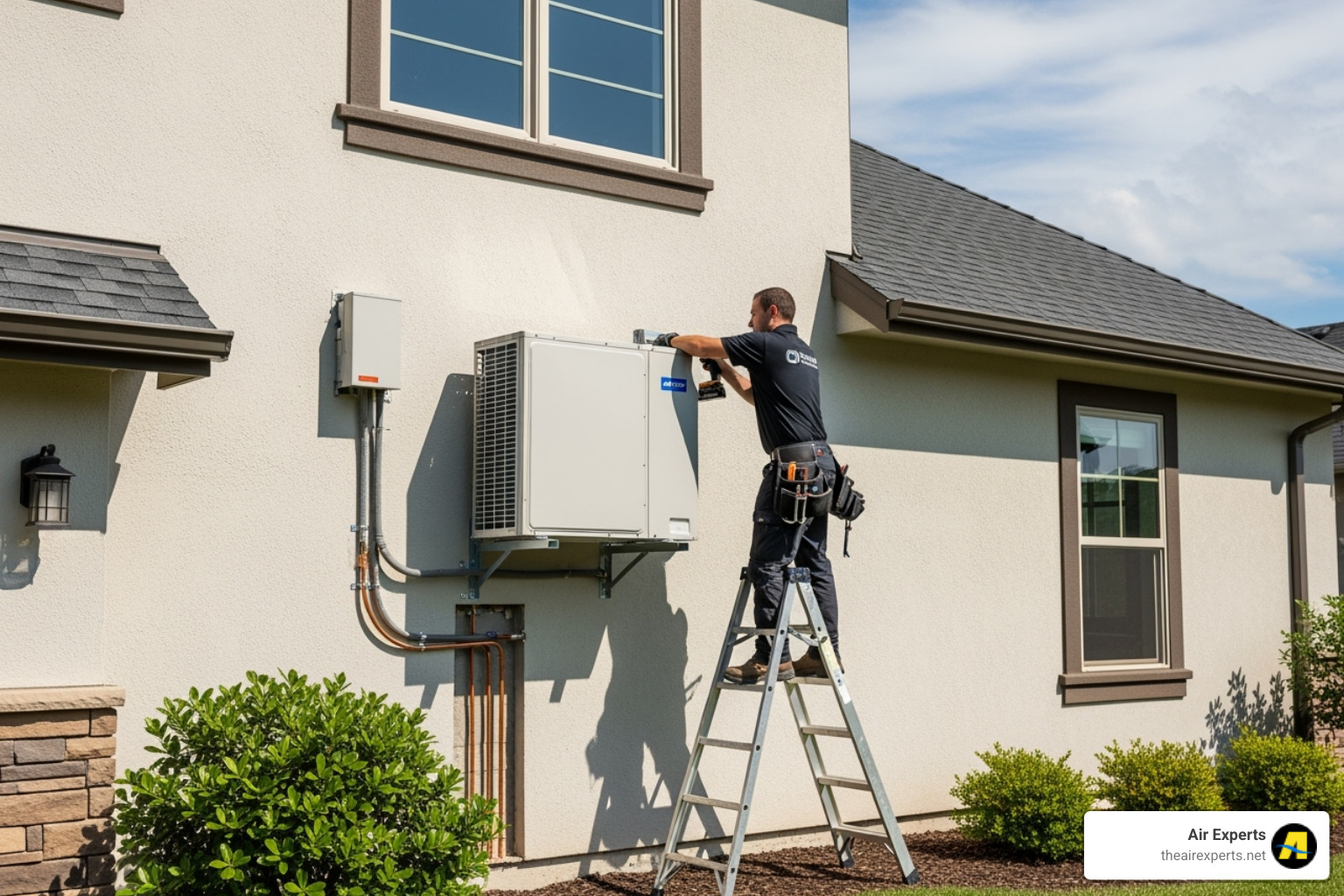

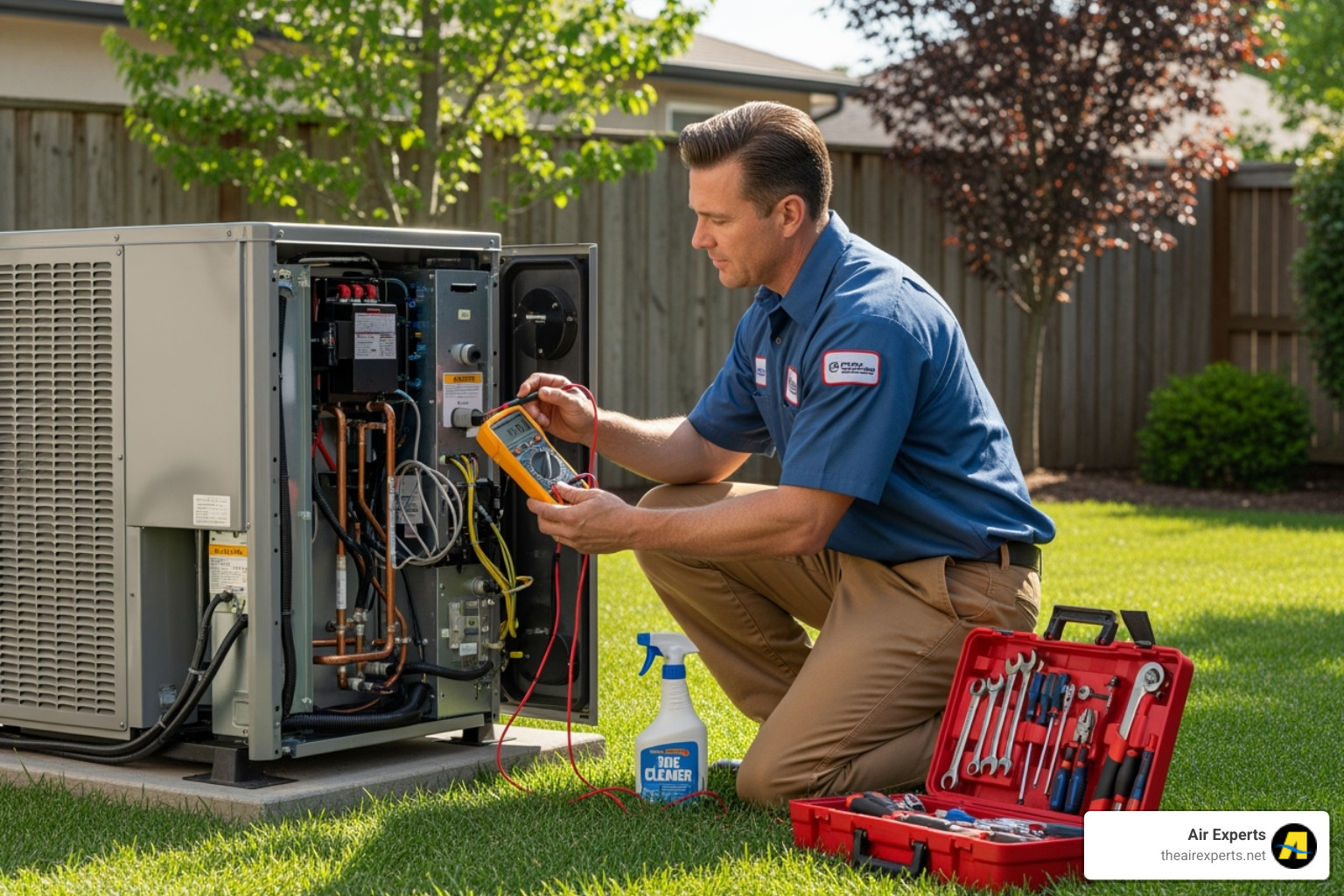
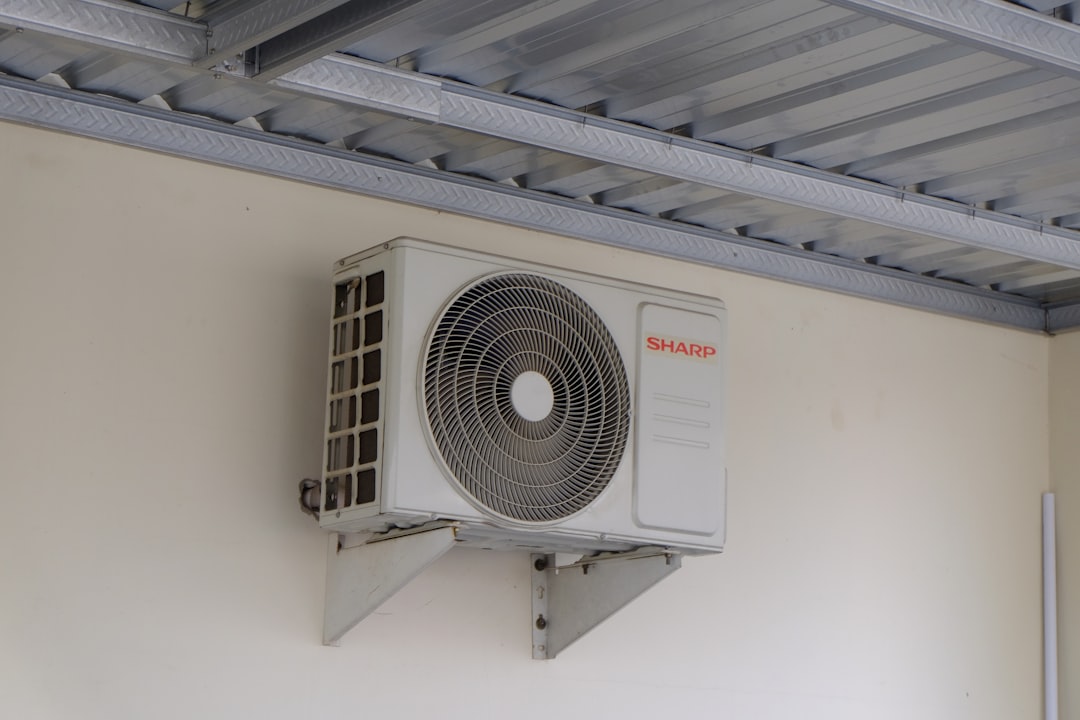
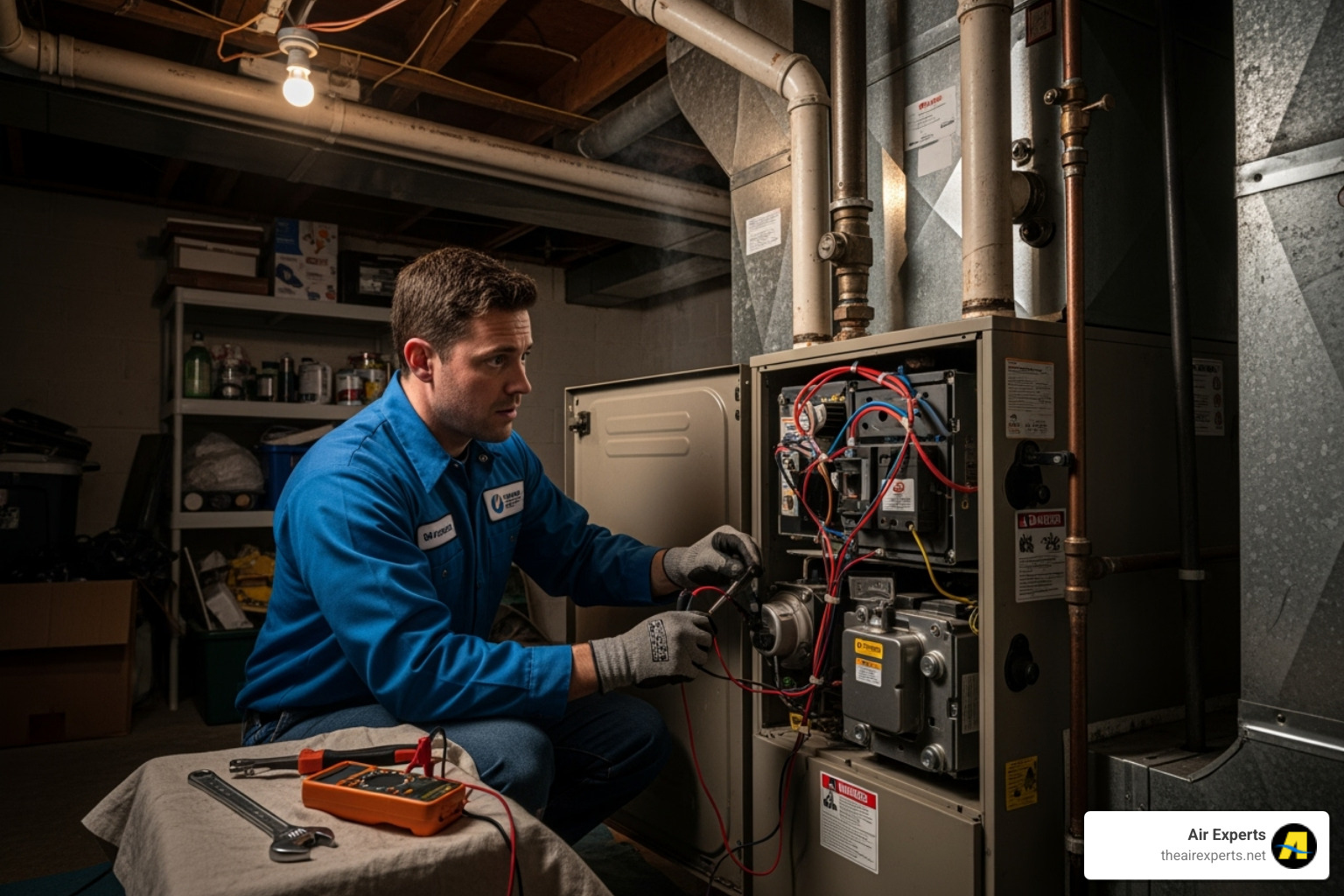

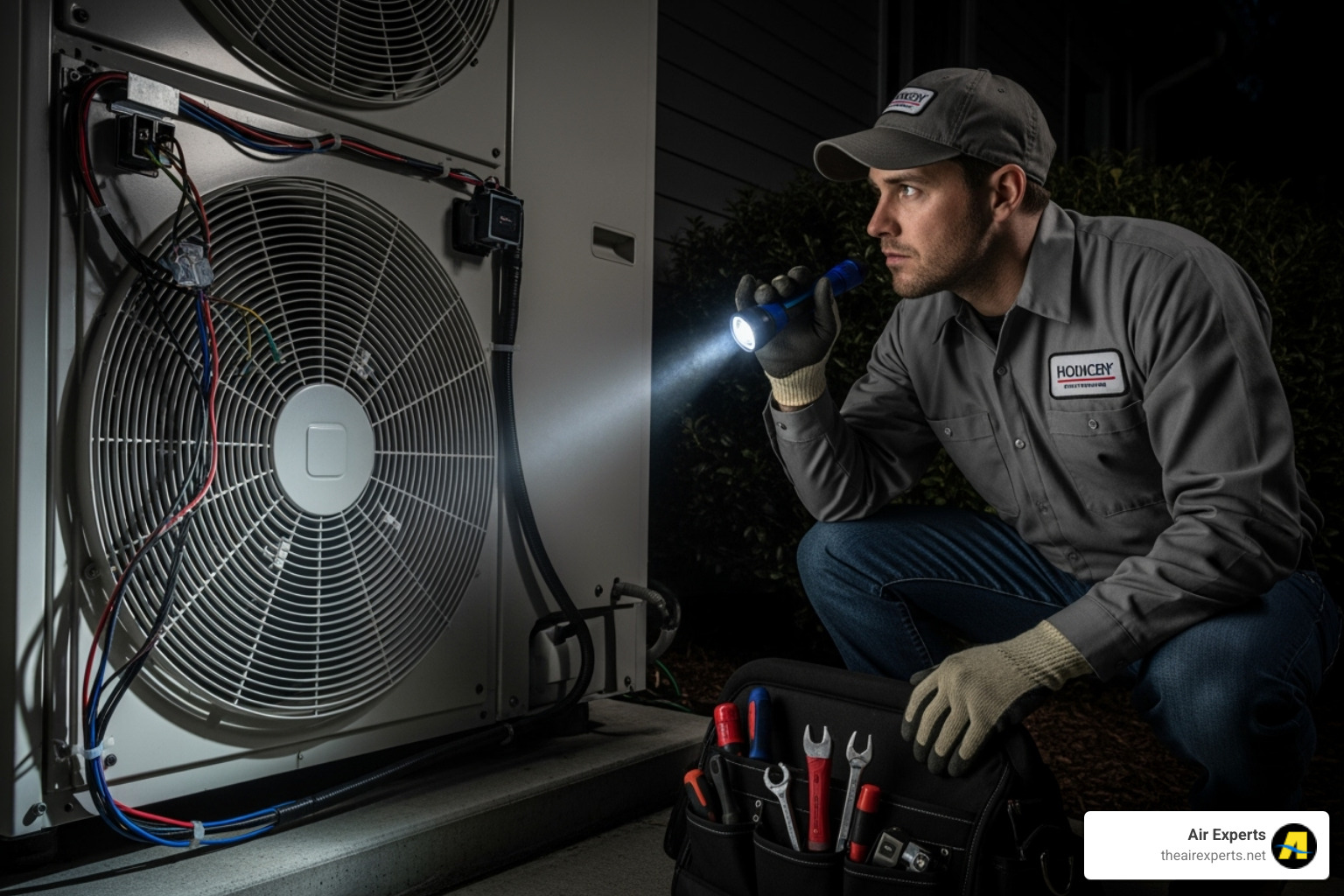
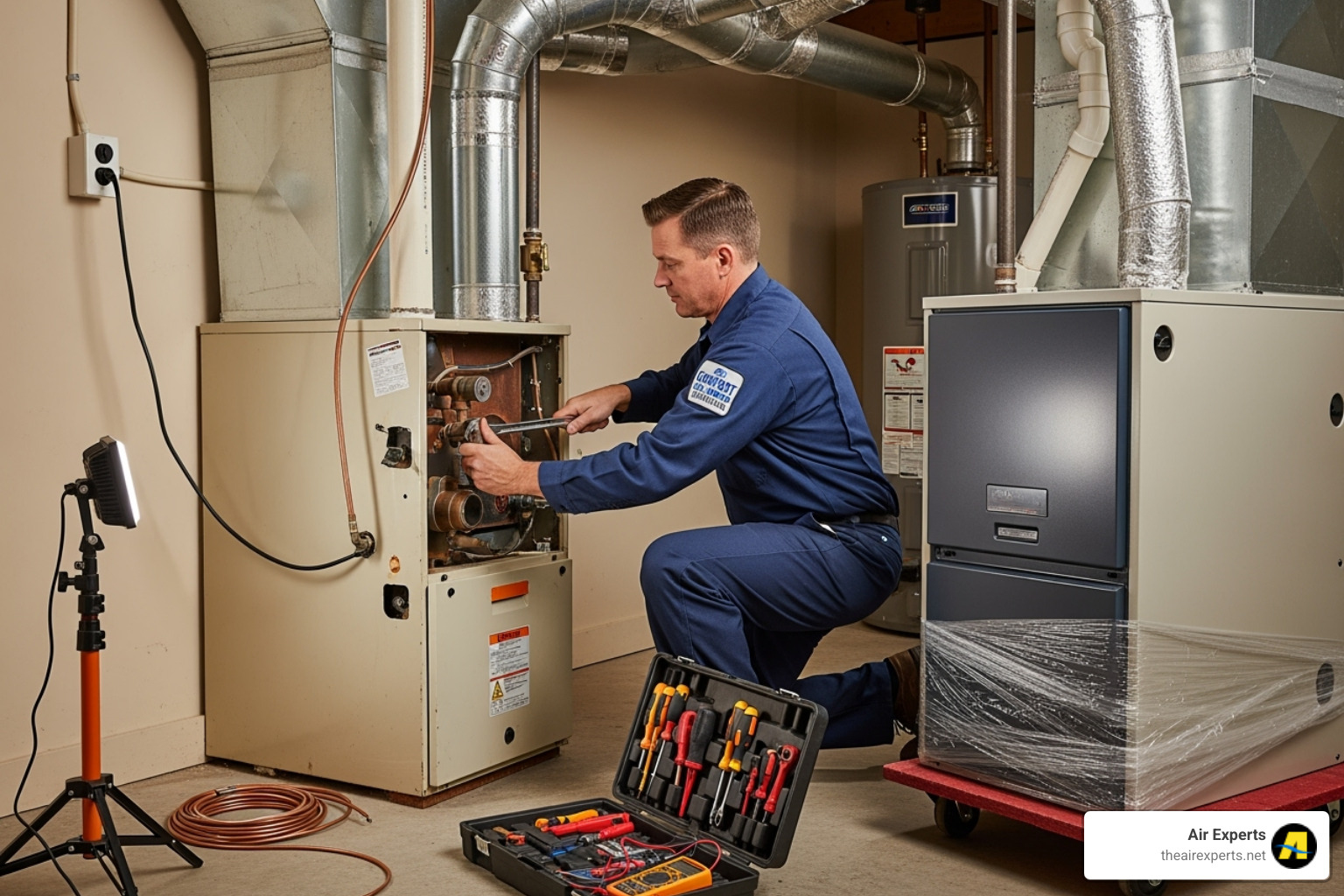
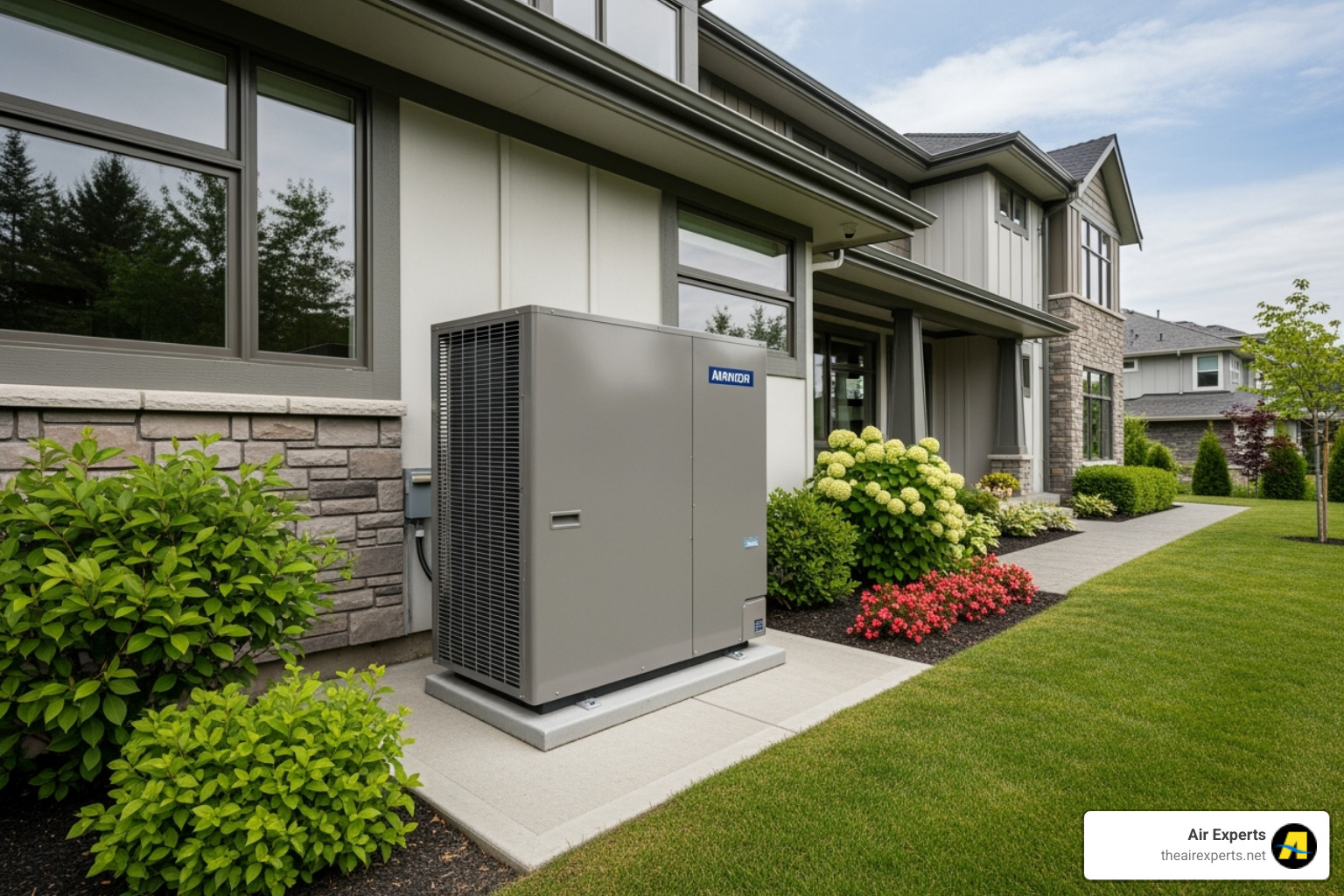
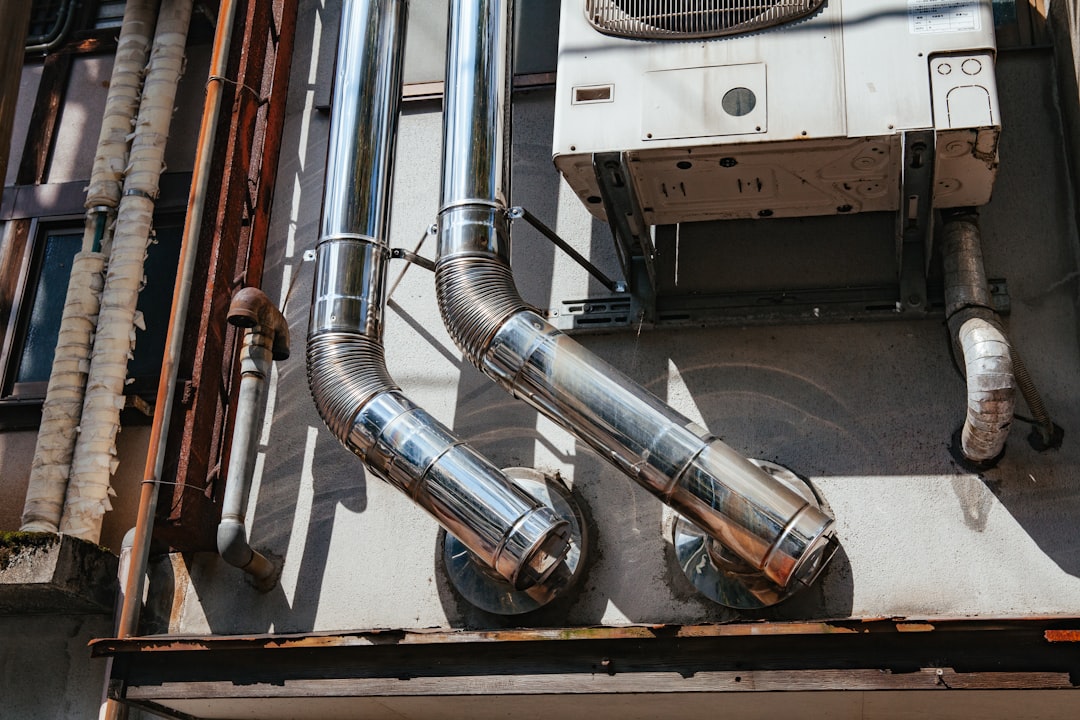
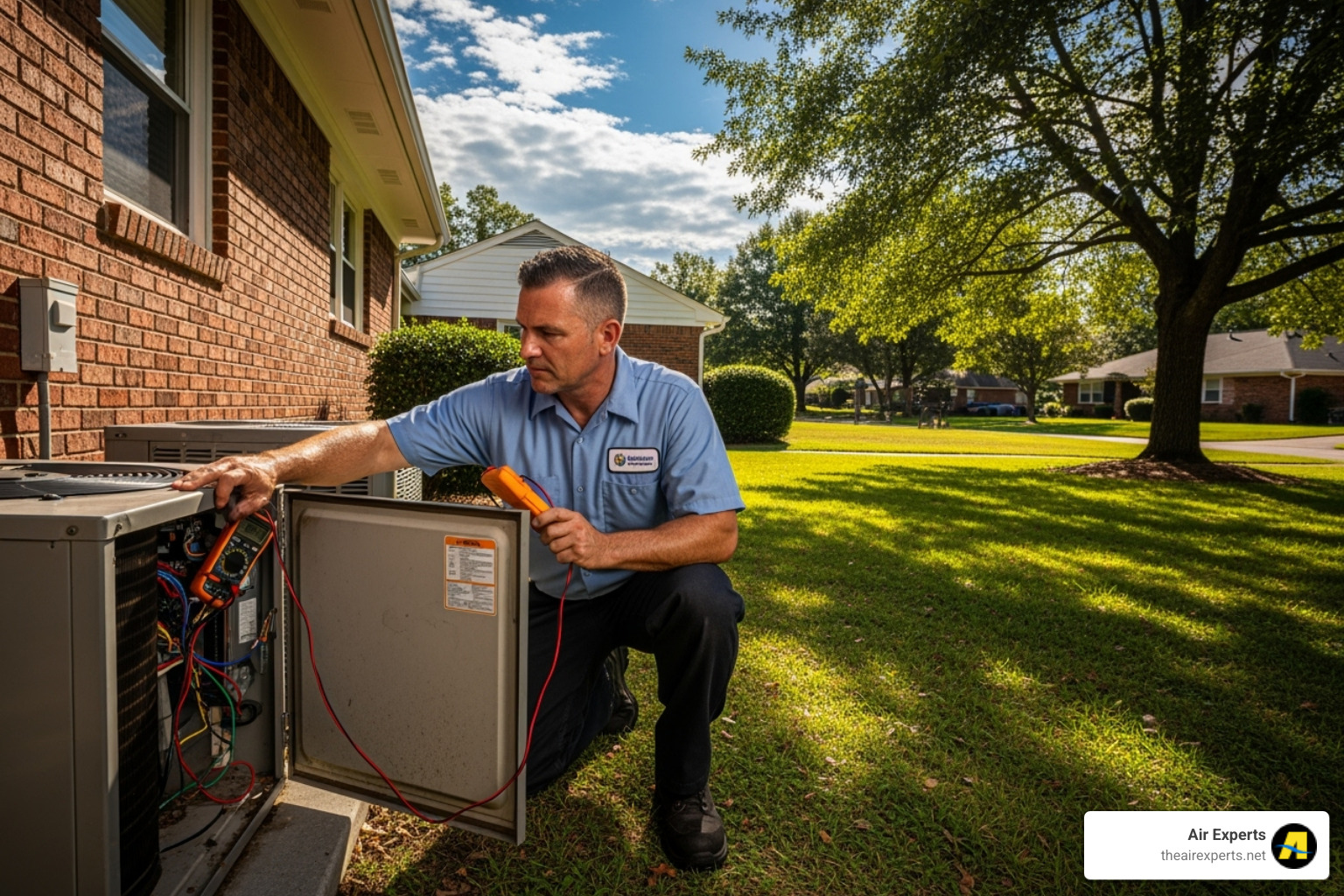
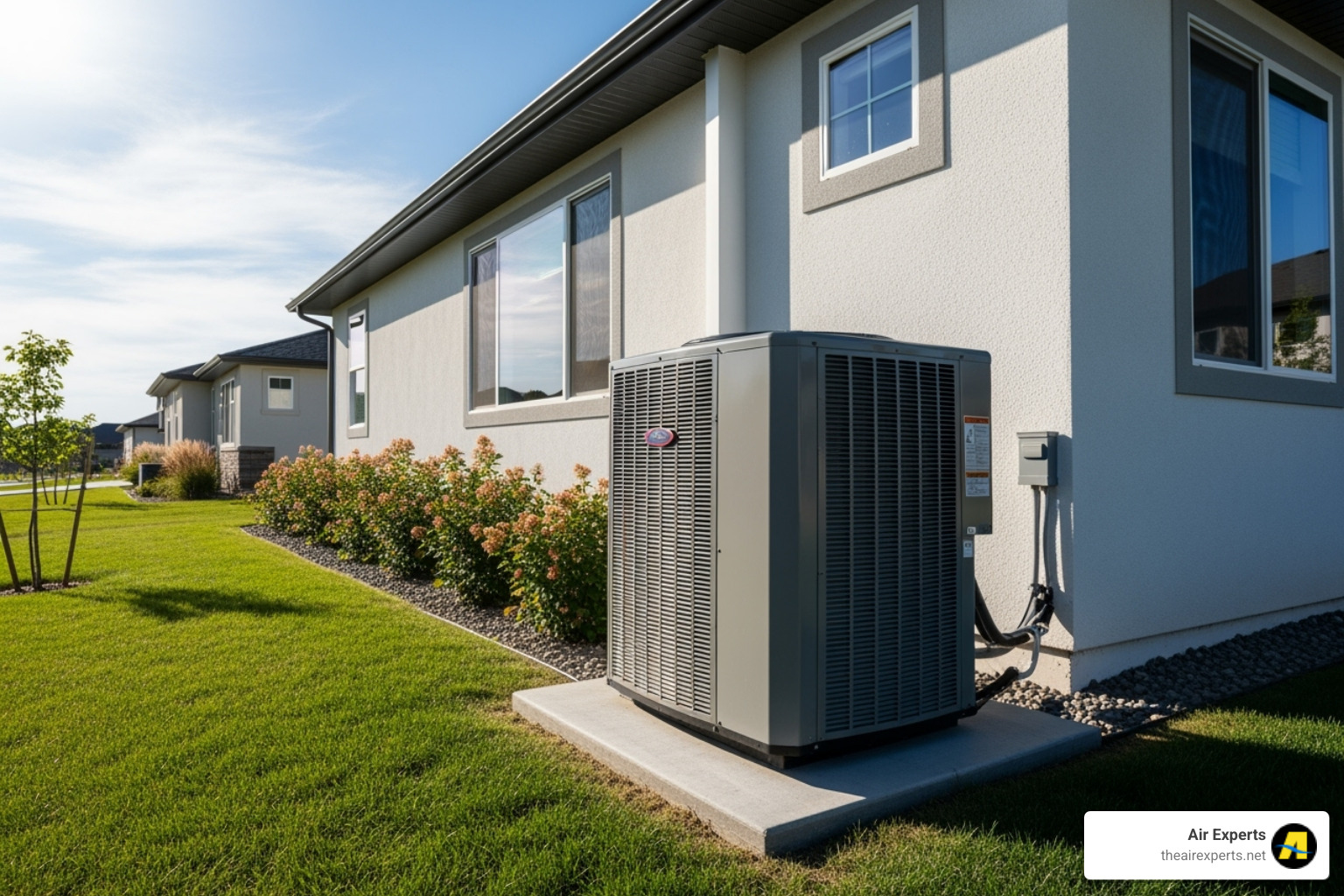

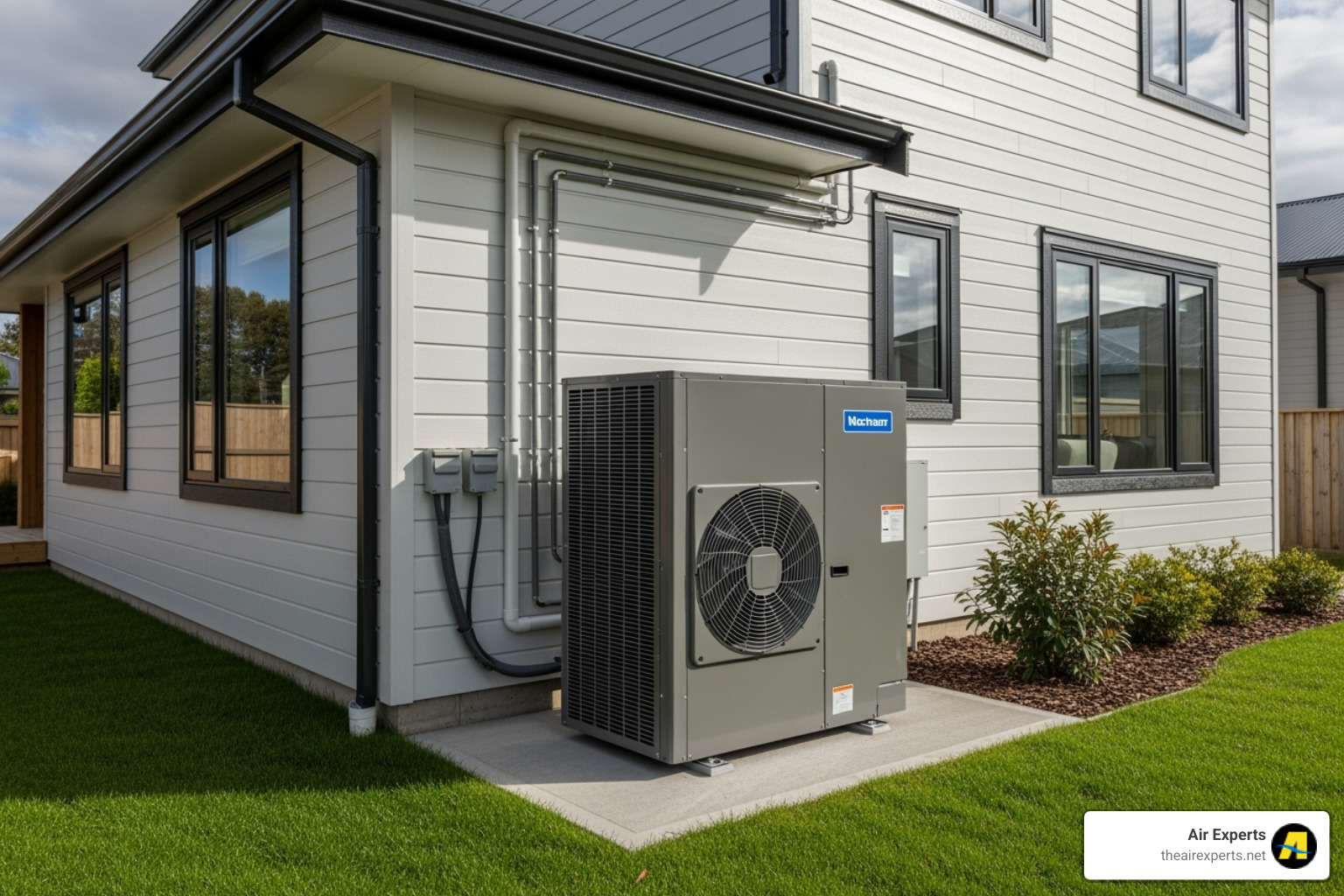
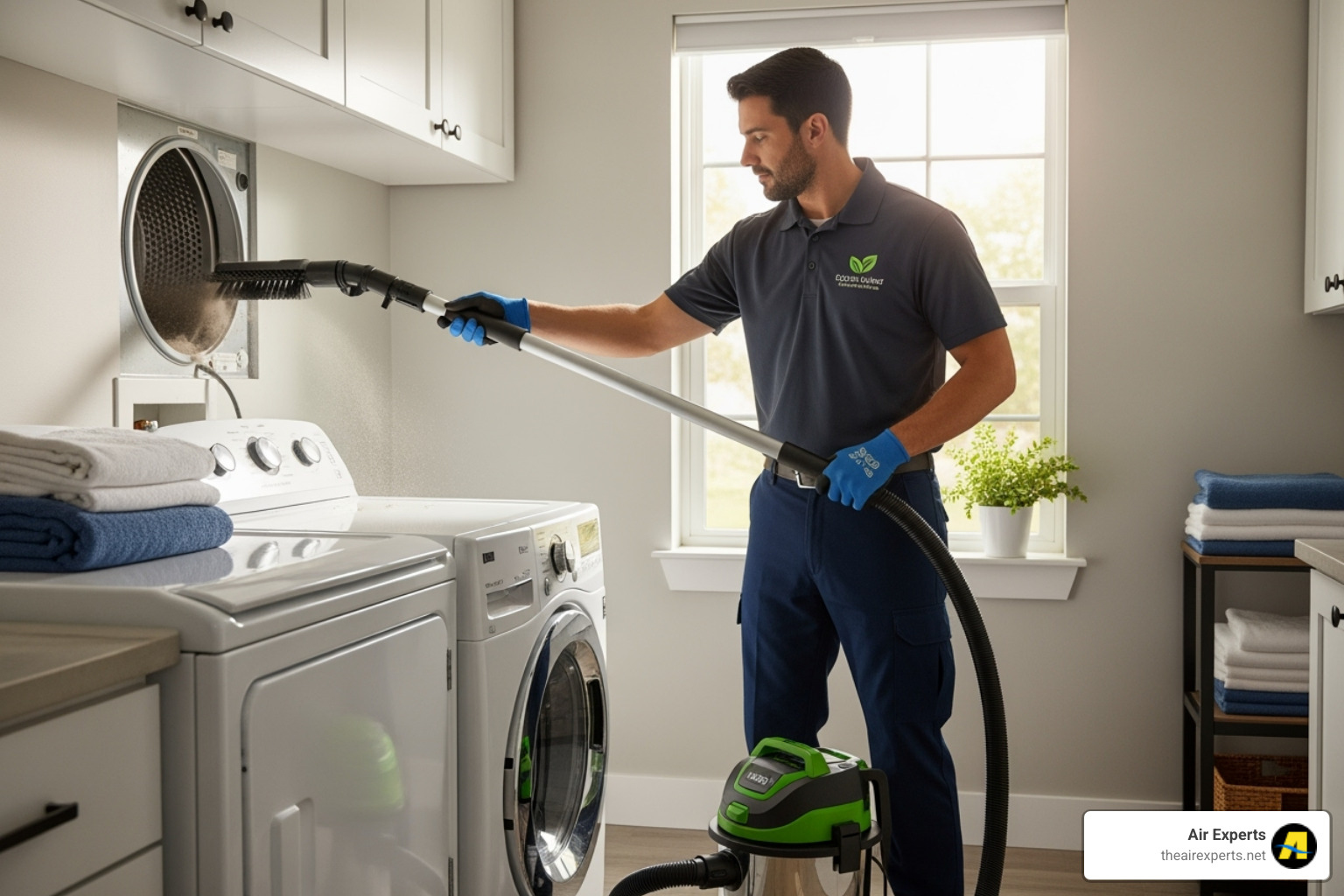

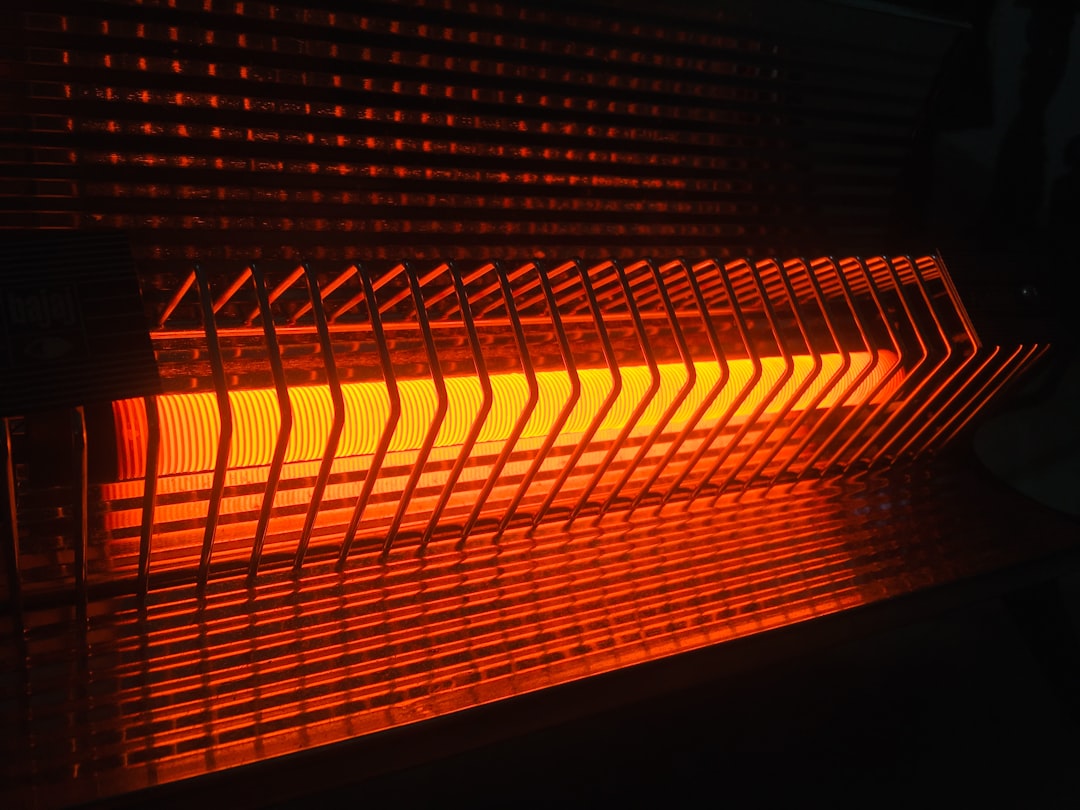
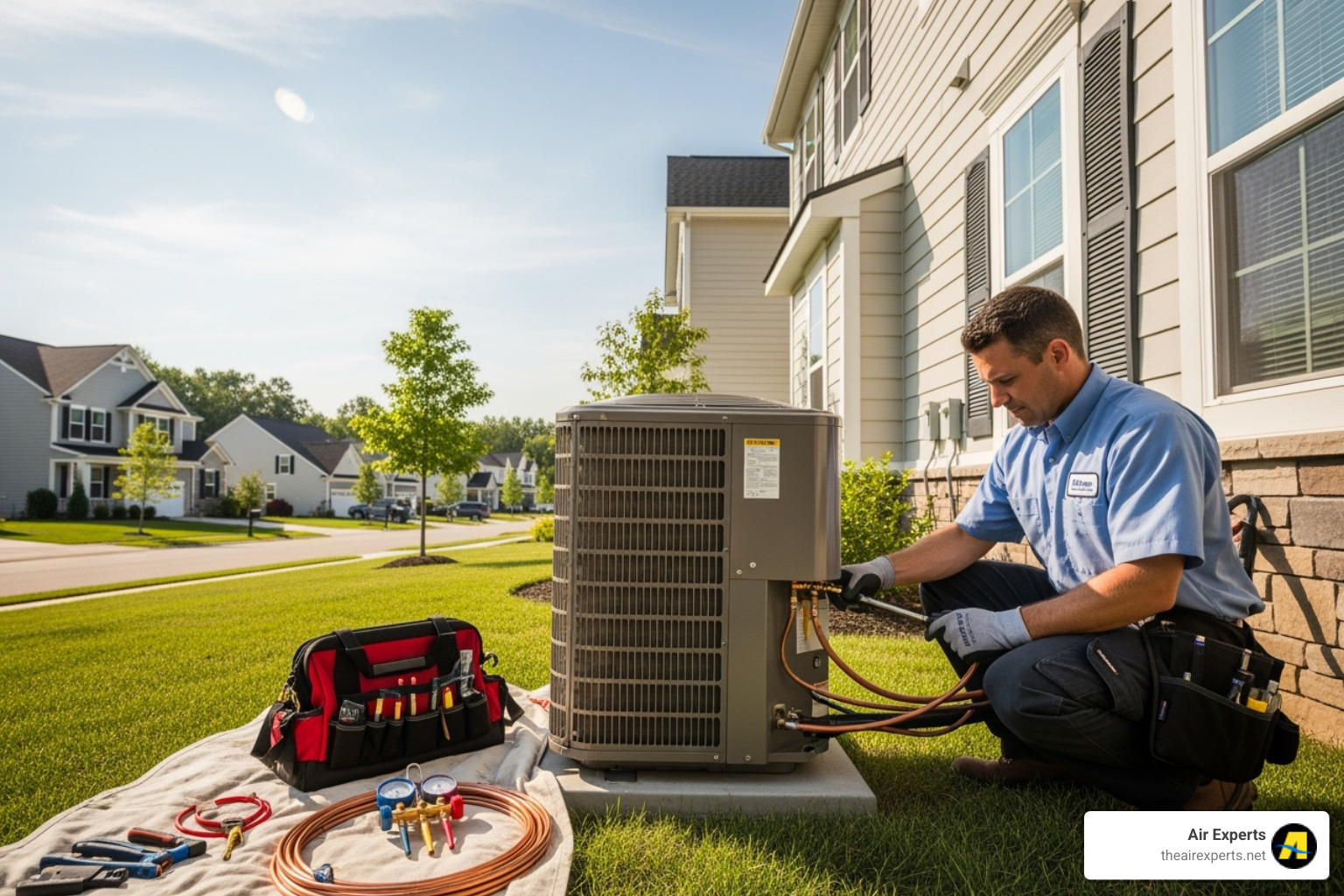
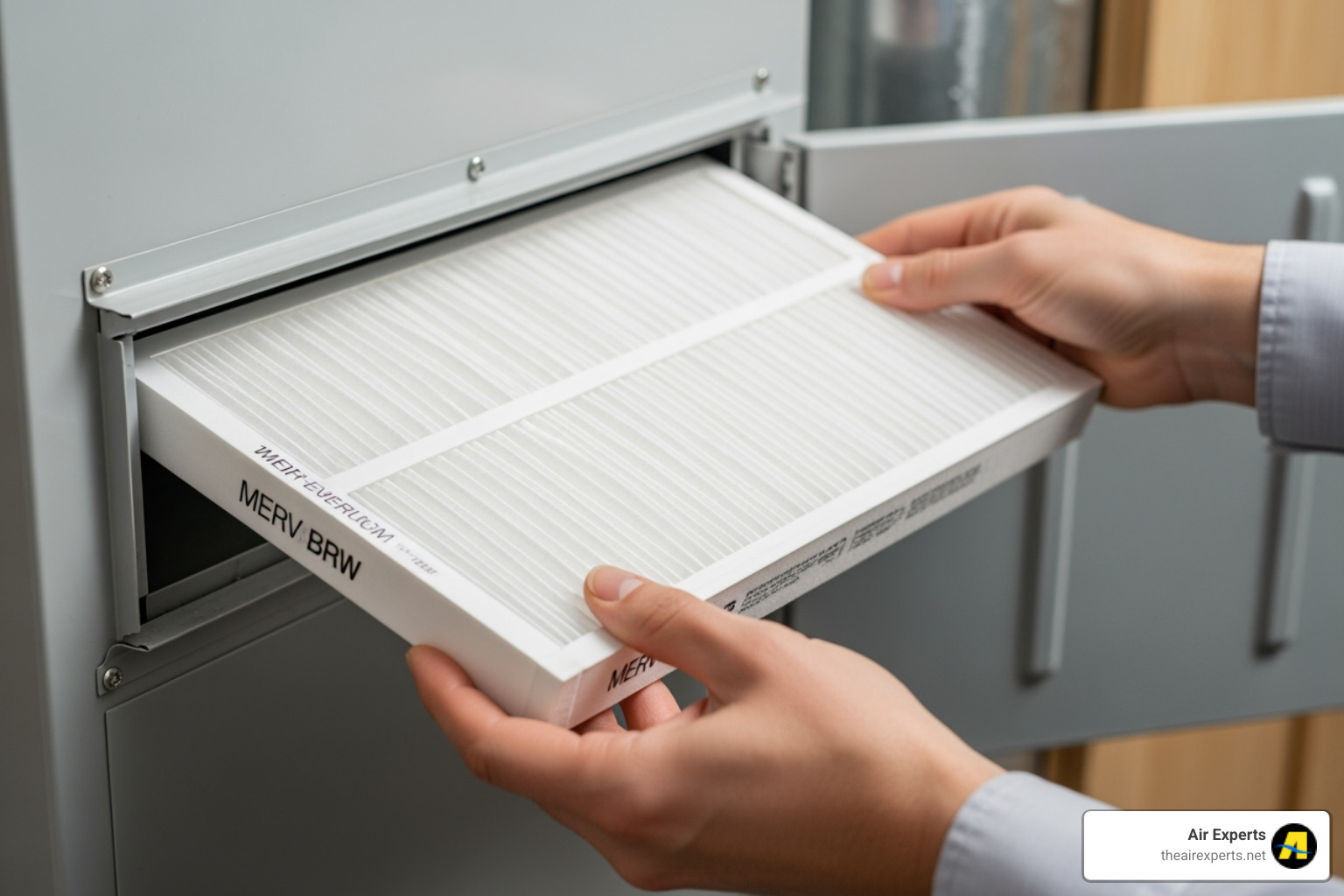
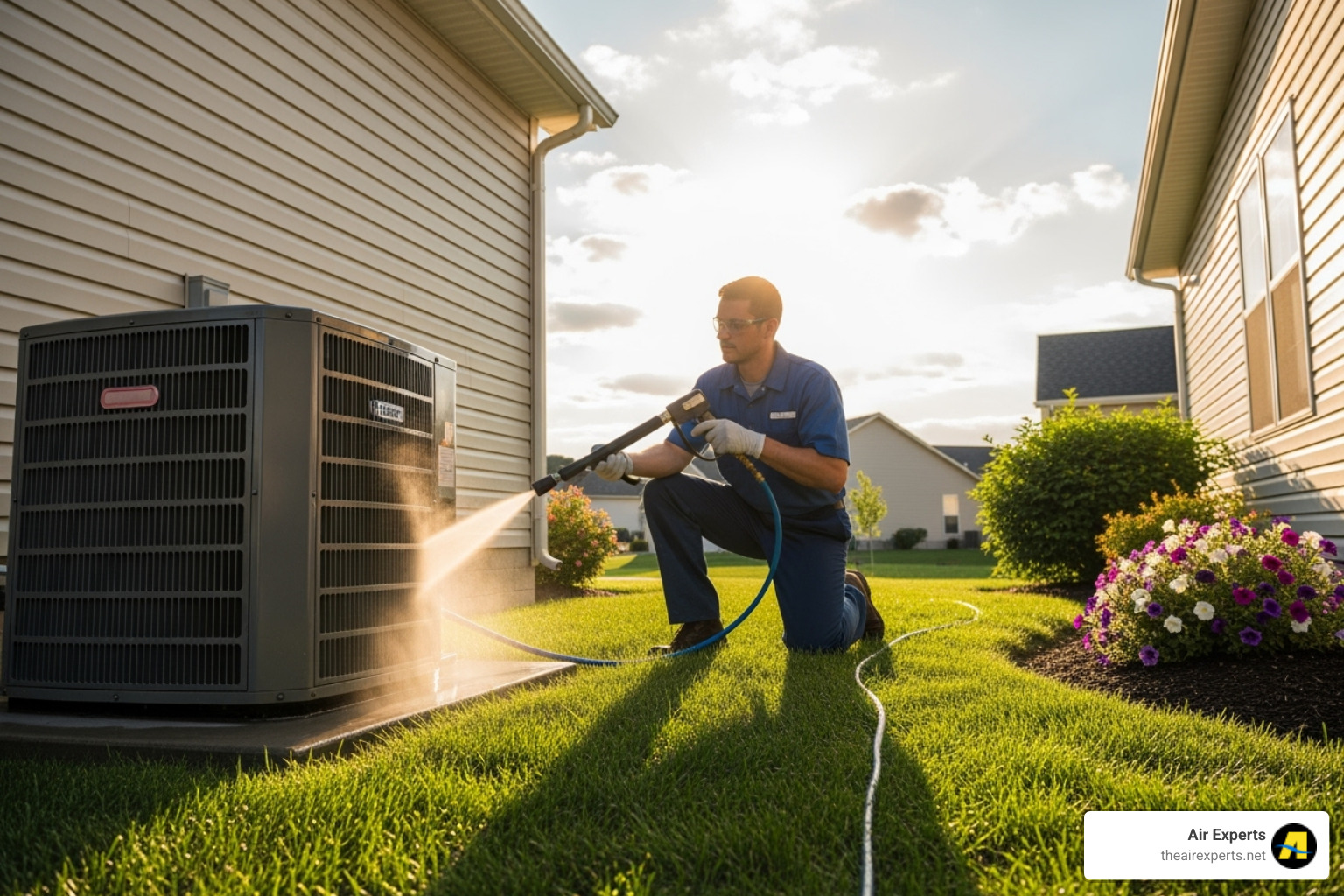
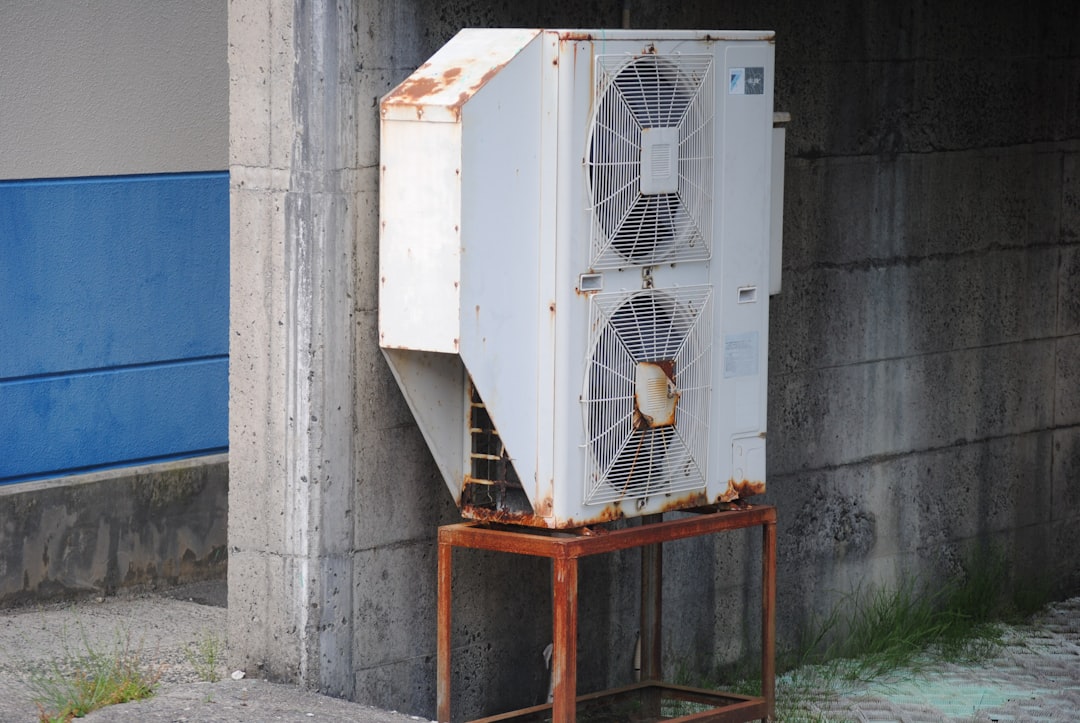
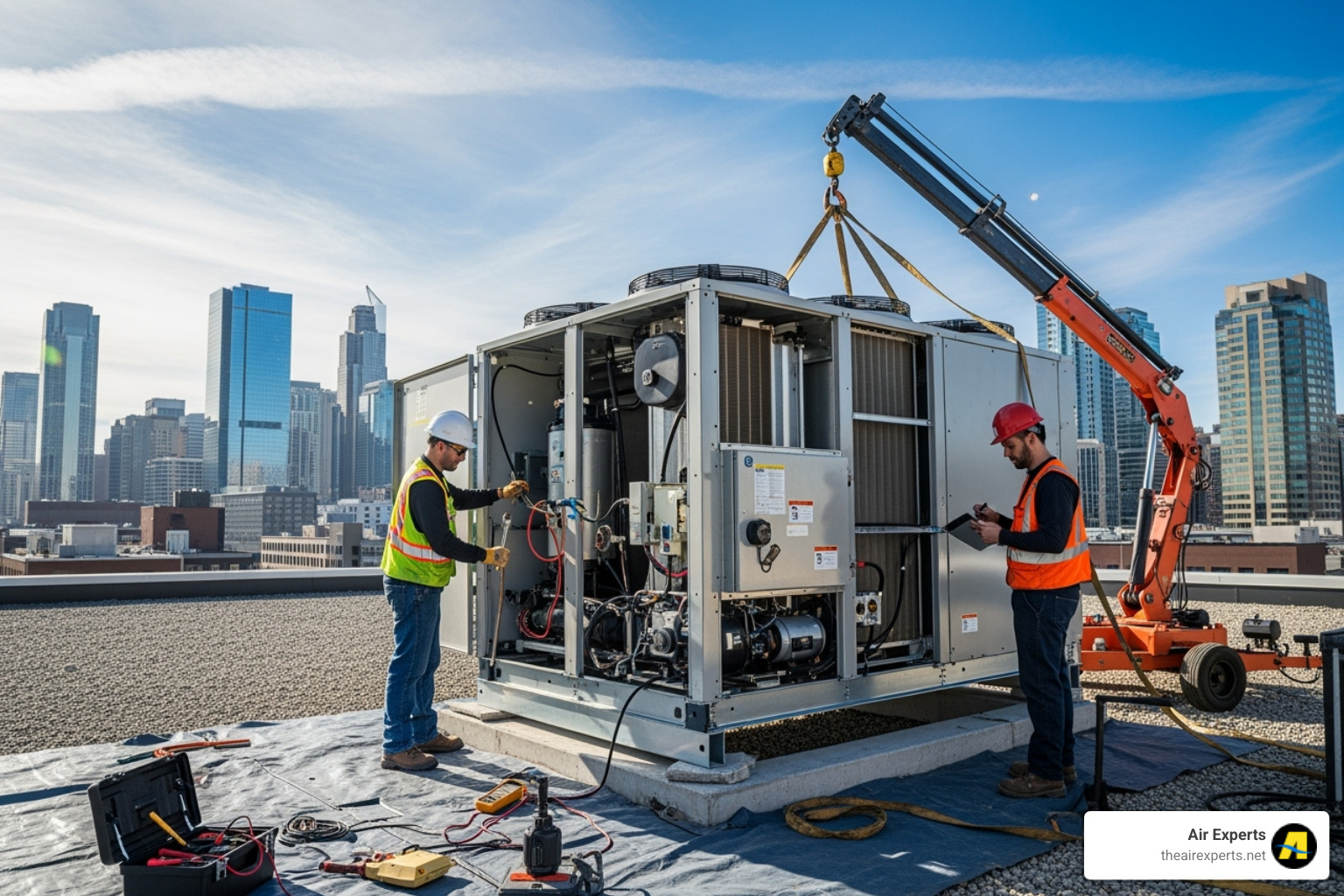
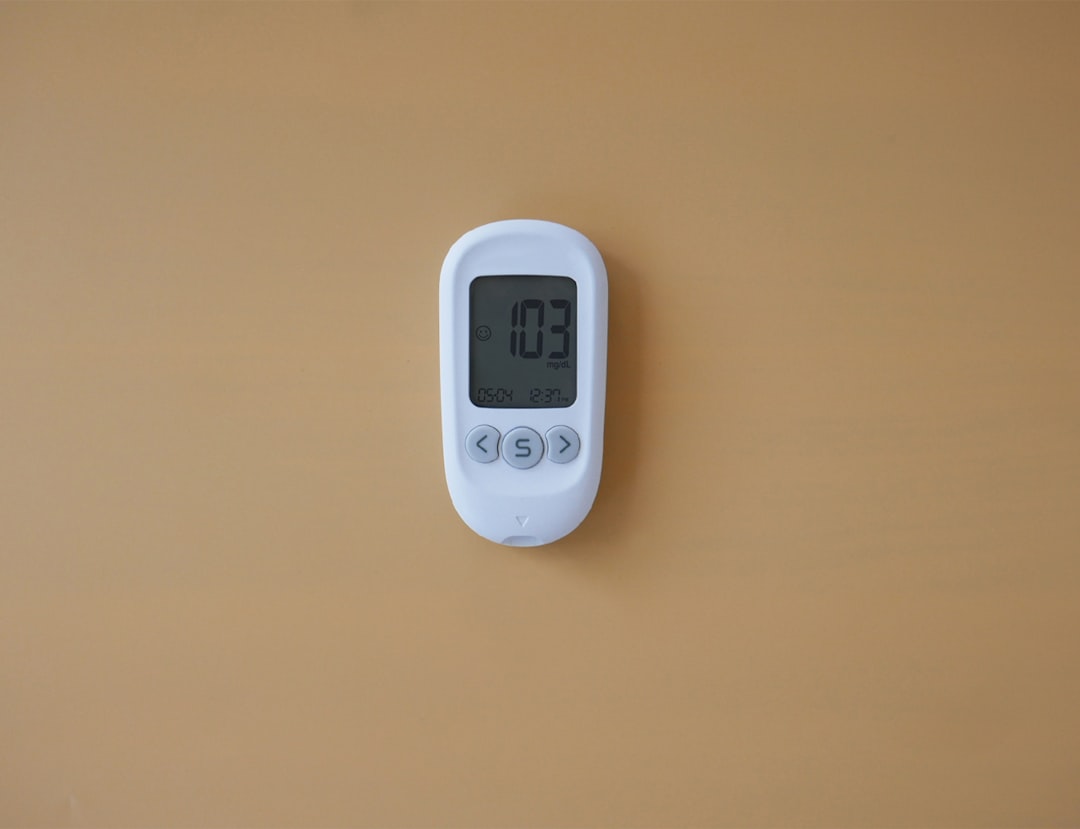
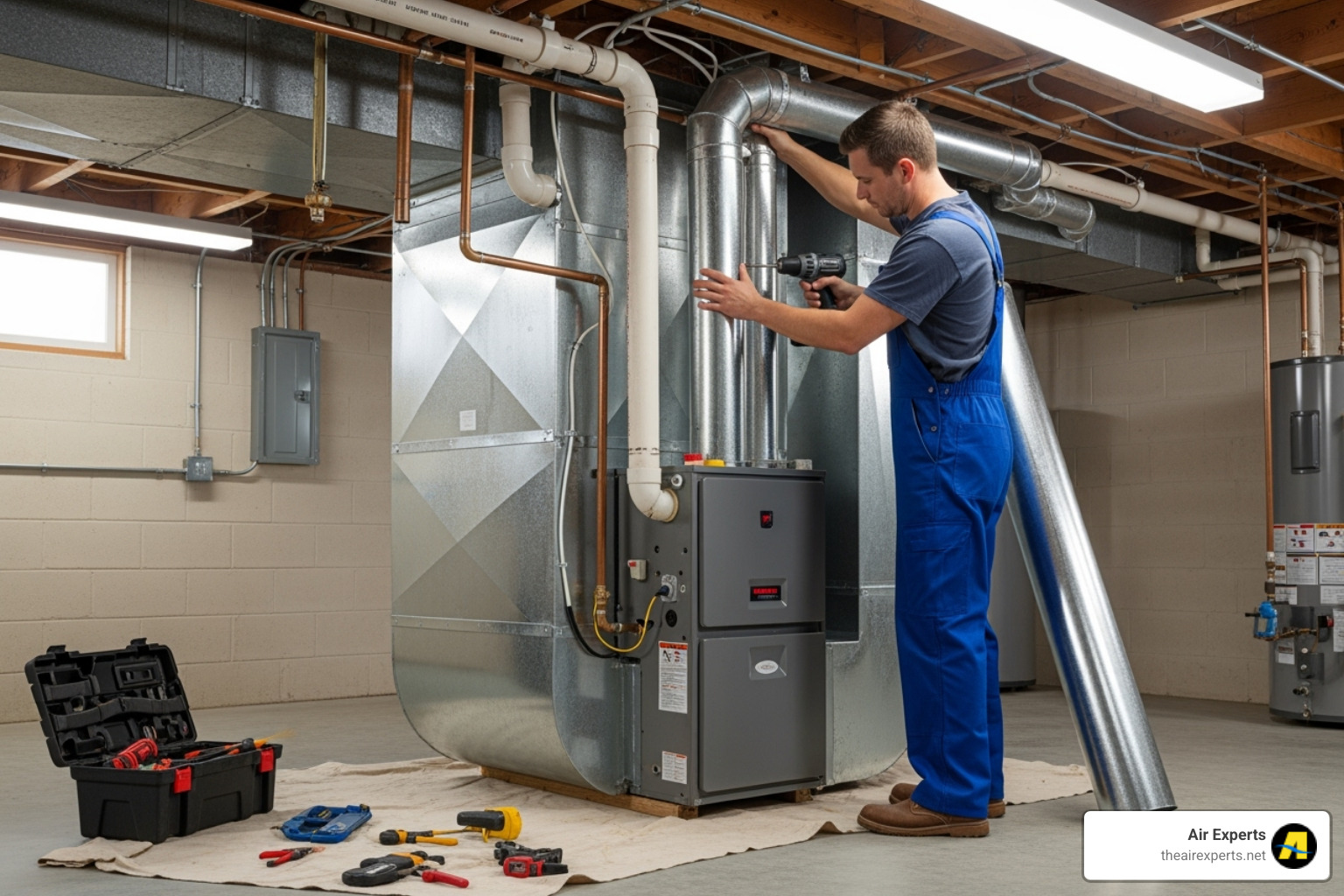
.svg)
.svg)




.svg)
.svg)
